“Silencio”by Patricia R. Bazán Editors’ Note: The original Spanish version of “Silencio” appeared in the anthology Nébulas peruanas, published by Grupo Editorial Caja Negra in Lima, Peru, in October of this year. Despite the fact that her days were all the same, the sleeping pills helped her stay in the clouds, avoiding the shock of an undesirable reality. Alfonso had no choice but to take their daughters to the United States, where he would process their paperwork required to apply for permanent resident status. Nevertheless, she sometimes wondered if leaving her behind in Lima was a punishment for failing to obtain a tourist visa. She was still relishing her farewell at the airport with masochistic bitterness. For the love of her offspring, Gracia knew her tiny body had to find enough life to endure a great sacrifice. Her husband was clear: she had to cross the border if she ever wanted to lay eyes on them again. The pills gave her a truce because they lengthened her life of an automaton. “Work like a bear, do something to kill time,” she repeated to herself. She didn’t even know how she was getting home: “See you tomorrow, mates”; the Metropolitan bus; walk three blocks and enter without being seen; go straight to your room; throw yourself on the bed surrounded by stuffed animals; fall into the void; a pill to fall asleep, then another, one more, a last one before finally passing out. The unexpected call broke her reverie; she felt compelled to answer, and a hopeful smile emerged from her lips: “Don’t worry, Gracie. I already spoke with Cristian and we have arranged that I will pick you up in Colorado.” Gracia. Full of grace. The grace of God. She carefully observed the room of her future pollero, the man who would guide her throughout the journey: The Peruvian flag of monumental proportions clumsily hung on the wall, a squalid coffee table artfully decorated and holding three pre-Inca huacos with gloomy faces; a colonial-style mirror with wooden borders on the opposite wall. The old furniture fought against the plastic laminate to free itself, a decoration that pointed to a life in transit, ready to flee at any moment. Just as she was beginning to nod-off, Cristian entered, greeted her, and went straight to the point: The journey would be arduous, long, and dangerous, but with a good chance of success. The future leader of the expedition was part of a silent and efficient network of experts in the border geography between Mexico and the United States. First, she would travel alone to Nicaragua, where she would meet her contact, who in turn would pick up future walkers from Colombia, Bolivia, Peru, and Ecuador. The rest of the trip would be made by foot, boat, or in multiple vehicles through Nicaragua, El Salvador, Guatemala, and Mexico, until they reached their final destination: Phoenix. Cristian stressed that, with the help of Providence, everything would be done in a sacred and inviolable silence. A sigh overtook her. She had kept silent all her life, and she didn’t mind continuing to do so, as long as she could see her daughters. Her mother was forced to remarry after her father abandoned them, an experience reflected in the dullness of her graceful eyes. Yet, she never said anything. She had mastered the art of remaining quiet with her head down, and perhaps at long last her silence would serve a purpose. Her suitcase was almost empty to pretend like she was used to traveling. As planned, a Nicaraguan man, one of her many connections on the trip, was waiting outside, as was Cristian, the leader of her expedition. After a courteous greeting, they asked her to step aside in order to spot two other travelers. Gracia thought it would be the beginning of a ruthless journey, a journey her battered body would have to endure. Onward. She considered that, apart from the vicissitudes life had thrown at her, she had had a happy childhood. On one occasion, she was sent to summer school to retake a math class, an excuse that justified a trip to the beach. She told her mother that classes were cancelled, but a classmate gave her away. She actually remembered very few details, as this episode had become somewhat nebulous over time. All it had left was the burning sensation associated with the slap’s imprints. A severe man, her stepfather administered harsh punishments, no matter how light the offense: strappings, slaps, kicking, and being made to eat with the dog on the floor. Her mother watched in cautious terror, as any attempt to protect her daughter would bring dire consequences for her and her youngest. Such long nights were also reserved for the wife, who would face the same repertoire of atonements for having failed to properly raise her daughters, with the added variation that he would make love to her on her reddened maternal body. After a long wait, all twelve left the airport and boarded a minibus, traveling inland until they reached Chinandega, a city whose colonial value they did not have the opportunity to appreciate. That is because they arrived at the most impoverished part; dilapidated wooden houses, unpaved streets, and an intense dust that would welcome all foreigners. They spent the night in a one-room den, something that would become a constant. The next day two more arrived, then three, until the group was complete. There were eighteen: eight Peruvians, five Colombians, two Bolivians, and three Ecuadorians. Sixteen men, one of them lame, and two women. The eldest was sixty years old, and the youngest eighteen. The only other woman in the group was twenty-three years of age, married and childless. She was traveling with her father and her brother; she had left her husband back home in Peru and was excited about the idea of a reunion in El Norte. The Dirty Eighteen. They remained there for a month. In the morning they would wash their clothes and the women cooked for the group, and when there was fried fish, it tasted like heaven. In the afternoon they would either go to the market or to the beach, play soccer, and eat only once a day to stretch the little money they had on them, as if to keep themselves slim. At night they rested on the ground on rickety mats, covered in stained sheets that had seen better days, being careful not to be stung by snakes or scorpions. By now, everyone had mastered the art of communication without uttering a single word. The septic tank was a lair of huge flying cockroaches that would land at night on the visitors’ bodies, only to be plucked during the day from their heads, the palms of their hands, and from in-between their legs. The worst affected were always the unfortunate who slept with gaping mouths. During the time that she remained in this little town abandoned by God and immigration, Gracia could not sleep, not just because she missed her pills, but because the constant effort to protect herself from the formidable brigade of winged insects was eating at her state of mind. The kindness and smiles of the townspeople, however, inspired an inexplicable tranquility. To pass the time away, they would sometimes gather and play cards, making bets on the soap. That was how Gracia came to learn about the lives of the other travelers, fictional lives they had invented to protect themselves from the unknown. Eighteen fabrications, all interwoven by silence and despair. One boasted of having been a sailor who had traveled to Japan where, according to him, he had left several girlfriends; another made up the story of having killed his wife’s lover for being unfaithful, leaving him no choice but to escape from Ecuador; Gracia recounted that her husband had taken away her two daughters for contracting AIDS in one of her many illicit love affairs, a lie that would prevent her from being raped; a certain Ángel told he had a talent for soccer and swore that one day he would be part of the El Norte national team; one named Sebastián, stocky, with straight hair, dark-skinned and who wore glasses, nicknamed El Feo, and with good reason, said that he would meet his girlfriend in Seattle and get married as soon as he arrived in order to conceive children who wouldn’t be as ugly as he. Each story was part of a transparent and sinister tapestry of eighteen intertwined pieces with a sole objective: in El Norte they would be reborn from the ashes of a merciless desert, and its ruthlessly effective police. Cristian distributed the group in such a way that Sebastián would always stay close to Gracia and protect her. She had deteriorated to the point of looking scrawny, ailing, and unthreatening in appearance as a shield against the harsh and inhospitable reality that awaited her. El Feo became her guardian angel; all the others slept in the same fetal position, night after night, like mummies, with the strange premonition of having embarked on an endless journey. At the end of the month, Cristian announced that they would soon leave for the port of La Unión in El Salvador, but not before demanding that they accept their invisibility from then on. They got up early, carefully folded their mats and donned their life jackets before boarding the speedboat where they traveled at a very velocity for two hours, dodging immigration boats. Suddenly, one of the Bolivians unintentionally undid the rope to which he was tied and flew away while the others witnessed his involuntary release, stunned by his unexpected wet death. Gracia would never forget Cristian’s face when the unhappy traveler disappeared; in a matter of seconds, he had lost five-thousand dollars. Once at their destination, the travelers jumped off the boat and dragged themselves to the shore with their backpacks. They did not know if the moisture on their faces was due to the sorrow of having lost a traveling partner or the freshness of the sea water. They arrived at eleven in the morning and began an endless walk. Invisible. Illegal. Silent. Now they were seventeen, doomed. They walked to the border of the mountains where they moved in a single row, becoming one with the soil when the helicopters descended in search of inopportune travelers. It was difficult to distinguish if the fear came from the threatening noise of the propellers or from the supernatural mosquitoes that slipped through their clothes stealthily, without offering them the opportunity to defend themselves, daring them to remain immobile. It was six in the evening when they arrived at a cottage in an abandoned town where they would stay for forty-eight hours. Wet and sandy, the rancher smeared them with horse dung as protection against the flying monsters, holding their breath to avoid contact with the fetid smell. Life was not offering them a truce, but they were closer to El Norte. Gracia had cuts and bites on her legs and feet, and her private parts were scalded from the endless journey in wet clothes. She only had ten dollars, but she was wearing a silver bracelet and earrings, a gift Alfonso had given her for their marriage. The owner asked for them in exchange for clean water and ointments for the wounds on her feet as the nearest pharmacy and well were ten hours away. She spent the night as best she could with four others in the same bed with their feet dangling. A few hours later, two vehicles arrived and they were placed, one on top of the other like a sack of potatoes, covered with a tarpaulin, so they would not arouse suspicion: “If the women want, they can get in the front to be more comfortable…” They formed a human wall, and the men in the group refused to hand Gracia and their traveling companions over to the predatory hyenas. They would rather endure the body heat and the dust than be separated from the group; the collective silence had taught them to distinguish individual breaths, one more method of protection, they thought. When they arrived at a mechanic’s workshop, they were put in two rooms filled with newspapers that served as beds. Those who had money sent for food and shared it with the others, and that’s how they spent three days in a village where even the souls had vanished. At dawn, a laconic one-armed man came and gave a simple command: “Follow me.” He was the driver who would transport them to the border with Mexico. They got into the truck and huddled together as usual. He dropped them off at the border and they walked all night. They crossed mountains, agricultural fields, and farms; they kneaded the cow dung and felt a merciless cold inside their veins. They were invisible, even to animals. They slept outdoors, one next to the other, with their backpacks, and the only change of clothes they had. One for all, all for one. Around ten in the morning, a truck pulled up, and they proceeded to get in, one by one, where they would sit, regimented, and squashed together to make room for the next partner. They rested despite the numbness caused by the other bodies’ proximity. They did not know when they crossed the great city of Guatemala, but when they saw the small room of their seedy hotel, they knew that they had reached their next destination. They ended up three in a bed, had three meals a day and bathed in hot water. Such luxuries came at a high price: Cristian asked them to burn their passports. Now there was no longer any doubt about their invisibility. To protect the two women, the leader of the expedition took the fifteen men to different brothels and in groups of three. He woke them all up at the crack of dawn because they had to be prepared in case they were arrested. They would imitate the intonation, become familiar with a few customs, and learn a national anthem that mattered very little to them, just to pass as Guatemalan. They made the journey to Mexico in a public bus, but not before hearing a recommendation from the guide: if they were captured, they would return to their country, but they would do so alone, without implicating their partners. They stopped in front of a security booth, then Gracia had a panic attack, leaving her with no other recourse than to hold on to the Mexican man next to her. Without saying a single word, the stranger understood, nodded, and took her hand. She was relieved. The seventeen passed immigration control without a problem, and when they got off, they shared a mutual smile: they were in Mexico. They would meet their driver in Chiapas once they took a good bath and had something to eat. Before leaving, Cristian gave Gracia three-thousand dollars in a paper bag to bribe the immigration agents in case they were detained, and addressed the group: “From now on you will meet several polleros. No matter what, don’t accept any packages, and much less cell phones, because they may contain drugs or a trap to reveal your location. Even though we will cross several Mexican highways during off-peak hours, silence will save your life and will continue to be your best friend. As soon as I give the signal, you throw your backpack first through the barbed fence and quickly run across the road. If you don’t want to be caught, you have to be quick.” They set off on the journey, and after a couple of hours, one by one began to jump out of the Ford, bouncing like beach-balls and at the risk of breaking their bones. Weak as she was, Gracia didn’t land safely, and fell into a dung-filled puddle, becoming covered with mud. Since she didn’t have another set of clothes, she moved on, having to deal with her fellow travelers’ faces of revulsion. Once on the other side of the road, they waited for the car that would pick them up after a signal. Her life was at stake, and speed was of the essence. Gracia and five others ended up in a VW Beetle; rotten in filth as she was, she sat on a fellow traveler’s lap. The trip to the outskirts of the Federal District seemed like an eternity, until they finally spotted a large house on the horizon. The pollero offered her clean clothes and allowed the women to bathe first. Their faces were calm; not so much because they were closer to El Norte, but because they couldn’t stand Gracia’s stench. To the surprise of the other seventeen, that night more than fifty other travelers joined the group. Gracia observed the new arrivals with sadness: pregnant women, some with babies in their arms, elderly, nearly blind men, orphaned children, and adolescents. For the first time in her life, the man with a limp didn’t feel out of place. Everyone was crying, everyone except Gracia. At a tender age she had learned that tears were not to be wasted and should be reserved for special occasions. They scattered the next morning. Upon arriving in Mexico City, the pollero informed them that they would take the subway to Guadalajara. They ended up in the home of a woman in a wheelchair ho rented rooms on the third floor to smugglers in transit. They couldn’t go out; they cooked at the house and shared two rooms; one for the women, and one for the men. The house was large, and the widow lived with her daughter, a pretty fifteen-year-old girl quite precocious for her age, who immediately fell in love with one of the boy travelers. Desperate to escape her fate, she reserved herself for someone who wanted to take her, and she flirted with anyone who would pay attention. Noticing the concupiscent eyes of her young traveling partner, Gracia asked him to feel sorry for the conditions in which the owner of the house lived; after all, she was helping them. “If it weren’t for her, we wouldn’t be able to cross; no matter how much the girl insinuates herself, respect her,” she advocated. In the end, the boy chose to cross the border rather than to become involved with the girl. The terror of being reported was a key factor: if the owner found out that her daughter had been touched, they would all end up in jail and one step away from deportation. When they went to sleep, Gracia discovered that the boys had jokingly entered her room. Wasting no time, she grabbed one of her trucker boots: they couldn’t yell or ask for help because they would end up at the police station: “Hey asshole, what’s wrong with you?!!! I don’t like you being in my bed. Moron! Don’t you know that I have AIDS and that I can infect you?” she said while hitting him on the head. “Don’t hit me like that, my head hurts!” said the scoundrel, as he fled to the adjacent room, where his minions were waiting for him. They left them alone and apologized as soon as they got up: “That was a close shave,” Gracia murmured in relief. At dawn they began a longer stretch than the usual and crossed Guadalajara until they stopped at Villa Hermosa, a shantytown on the outskirts of the city. A seedy camp awaited them, with only one toilet, no water, where everyone defecated and left their shining fresh lumps of excrement, scenting the outdoor shower. Six boys slept on a couple of bunks, while Sebastián laid on the ground next to Gracia. They slept like this until it was time to cross. Of Cristian’s group, El Feo was the first to disappear and Gracia the first to notice his absence; she felt helpless without him. The next day six more left. The destination was Piedra Lisa in New Mexico; there, Cristian would contact some relatives to release a few, slowly but surely, once the debt was paid off. Gracia went out with eight men and the other woman in the group to take a bus. Suddenly they were stopped by an immigration officer. Cristian had warned them that all of Mexico was swarming with police officers due to pressure from the United States. They pretended to be asleep, and with deep sadness, they witnessed their own arrest. “Fifteen-thousand dollars lost,” Gracia muttered. Moving on. The wandering seventeen. Once at the police station, she began to cry out of powerlessness and then remembered the three-thousand dollars Cristian had given her to bribe the immigration officers. The fear that the agents inspired in her was so great that she saw them as towering, ferocious, and ignominious. She gathered herself and thought clearly. They separated her from her companions and a female officer took her to a cold and dark room where she had to undress; The officer’s jaw dropped: Gracia’s belly was protruding, and she looked pregnant. Years later she would remember how her abdomen, the product of so many Peruvian potatoes and rice, would save her life. “Do you bring something in your private parts? Are you clear? You don’t have anything? Where are you going?” the agent asked. “I’m on vacation with my husband. I don’t bring much, I’ve been told that Mexico is a dangerous place so I’m travelling lightly, but I have my money. Once we visit our relatives, we return to Guatemala,” Gracia replied, imitating the Guatemalan intonation. “You better. This is no place for illegals here. There are too many and we don’t want you either!” concluded the officer. They released them and sent them back penniless to Villa Hermosa where they found out that some of their traveling companions had been deported. At least something good came out of Cristian’s three thousand dollars. It was at this precise moment that she understood that her silence was a gift rather than a curse. When they left, Cristian took them to a clean and safe house where they stayed until January first. They sent for a roasted turkey, and for the first time, they drank tequila, delicacies that anticipated the most dangerous part of the trip: crossing the desert on the outskirts of Phoenix, a savannah that required black clothing for camouflaging in order to become one with the desert. They left their last lodging in Mexico at night for a bus stop that would leave them at a precise point to cross the border into Arizona. The trip lasted six hours in total silence, dressed in black, in the darkness. The mist was thick, and on the horizon, there was a piercing light that guided them on the abandoned road they were traveling. Suddenly, the vehicle stopped and, one by one, they began to fly off in whichever direction they could. When it was her turn, Gracia, confused, didn’t know where to run. She froze and after a few seconds she realized that truck had moved on; she was in the middle of nowhere, alone with her terror. She was left facing the gray density and unable to scream because her silence had eaten her words before leaving. At that moment, an energy transformed into matter invaded her, seized her hand vigorously, and forced her to follow it. She was frightened to death: convinced that she had penetrated the unknown, she resigned herself. In the midst of this nebulous episode, she remembered Alfonso’s premonitory words: “Gracie, honey; I don’t want to scare you, but if there comes a time when they are going to rape you, leave it alone, cooperate, the more you resist, the more damage they will do to you.” She let herself be swept away by the guiding hand, felt a wooden bridge under her feet, scrambled over huge boulders, thinking she was going to an inescapable end. She continued. Once the mist cleared, Gracia realized that she was safe: the hand released hers and left. She noticed a field with many stones, typical desert stones. Her loneliness was immeasurable. Little by little she began to distinguish a myriad of men, women, adolescents, children, and elderly people sprouting from the stones. Human rocks. She leaned back on something hard and immediately felt a warmth: the rock took off its mask, revealing a familiar smile. Both the man with a limp and Gracia greeted the dawn with pouring rain, and it was then that they understood the reason for the term mojado, a word invented by the rain itself as a symbol of solidarity with those who cross the desert. She felt calmer and settled in with the group, hugging the black garbage bag that Cristian had given to each of them before leaving. The sixteen pilgrims became forty-six; they were Indians, Brazilians, Europeans, Africans, and Chinese: they had crossed the border. Gracia felt an unknown tear invading her face, only this time it was not caused by a humiliating slap on the face, but by the joy of being alive. Upon resuming the trip, Gracia faced the immensity of the desert, knowing that she would remain stagnant since her aching body would not cooperate. She was stumping through mud, stumbling, physically and emotionally exhausted. She gave up twice because the cramps had taken hold of her legs until she heard the pronouncement of the main pollero: “If this woman can’t keep up with us, we have to leave her behind.” Her partners refused: “She is going to continue walking.” The water ran out due to the number of travelers; they resisted until the last moment to carefully drink it and savor it to the last molecule. At nightfall they threw themselves into the arms of the vast sheet of arid land and Gracia felt sick again. She had chills, a headache, and her wet blankets did not provide her any relief. She still had a long way to go, and six specialized smugglers had arrived to cross the desert as the group had grown. They had to move. In a curt and insensitive way, one of the polleros stated: “We have to continue to the other side of those mountains. We walk during the day and sleep at night in the desert.” Cristian and two other polleros led the group while the remaining four carried huge backpacks containing thick blankets, pallets, telephones, and” supplies, and withdrawing from the group at night. The polleros slept comfortably and the mojados with their garbage bags. The women had the option of sleeping in their camp, but the men begged them to stay. They protected themselves in silence. When the smugglers sensed the flight of a helicopter or a small plane, they immediately shouted: “Pretend to be a ball and don’t move.” In the distance they looked like stones, and the darkness protected them. They were stones day and night. They walked like this for three days, sensing that the desert was their magnanimous mother. Gracia began to vomit and between the pain she became delirious, “I want to continue. Give me a drug or something, give it to me because I want to continue, I have to see my daughters.” Someone gave her a Coca-Cola and her traveling partners donated their ration of bread to force it onto her, thus giving her energy. Her bleeding feet were about to burst from the blisters, but her will was stronger. Through Cristian, Gracia found out that Sebastián had been captured on an interstate in Phoenix and was going back to Mexico; she had no one. She was completely sickly and when he saw her, the lame man was the first to offer to carry her on his back: “No, you are not going to stay here!” and so they moved on; everyone took turns carrying her, and at the end of the day they would put her on a blanket to rest. The straw that broke the camel’s back was the last hill and Gracia gave up; they decided to leave her. Cristian asked that they take him and Gracia to the first ranch they found, “I don’t want this woman’s death on me here,” he said. Six carried her, making sure they were not seen when the house’s sixty-two guard dogs came out to greet them, and they all fled to hide behind a broken truck. Once the mojados left, Cristian cried for help: they gave themselves up. An hour later, a blonde, blue-eyed agent came in a truck; he examined her, she had a fever and was crying, “Please I need to see a doctor.” Cristian declared: “I am her friend, and I could not leave her alone.” In flawless Spanish, the immigration officer asked if she was pregnant. “I need to take a shower,” she replied as she removed the blood-soaked washcloth. He took her information and brought them to the border near Nuevo Laredo so she could see a doctor. They went to a nearby pharmacy where they gave her medicine for pneumonia. “Don’t try to cross the border into the United States, please,” the blonde officer advised them and politely said goodbye. They arrived at a hotel, she bathed, took her medicines, and slept like a log. “I’m not going to last, I can’t walk. I’m going back to Peru, Cristian. Thanks for everything.” “Your husband is willing to pay, I can’t keep losing any more money. Besides, I like you,” the guide answered while he dialed a number. They went to a house where she slept on the floor: there she found Sebastián, now recovering from a heat stroke. Through his contacts, Cristian obtained false documents to enter the United States and taught him a little Mexican Spanish. Two days later, he introduced her to a pollera who had three young daughters and made Gracia their aunt. “So long as they don’t ask you, don’t say anything,” the mother advised. They got into the Mercedes Benz and Gracia caressed the girls as if they were her own. Arriving at the checkpoint, the woman explained in perfect English: “I am going to McDonald’s with my family.” The sounds of the English language sounded like a heavenly hymn to Gracia. They passed and, after eating, the woman left her at a young couple’s home. The next day, she was sent to Colorado, where Alfonso was waiting for her. Gracia never saw Sebastián again, but she found out from Cristian that he, the lame man, the self-confident man who threw himself into her bed, and the Peruvian woman who was traveling with her brother and father had crossed with thirty-six other travelers. They were now gringos and they paid true homage to the phoenix: they had been reborn. It was the last trip that Cristian carried out before retiring and marrying Lauren, his girlfriend of ten years. Later on, Gracia read in the newspapers that two of the polleros ended up in Mexican jails, one for raping and the other for using illegal immigrants as mules. The travelers opted for oblivion and the experience died with them, aware of having been marked for life. Thirty years after that inconceivable test, Gracia still remembered the protagonists of the nébula that had defined her existence forever. From the window of her house in Forest Hills, and before taking a sip of tea, she whispered: “Thank you, Silencio.”  Patricia R. Bazan was born in Lima, Peru. She arrived in the United States at the age of twenty-one and has been residing there for over forty years. She is a professor at Fairleigh Dickinson University in Madison, New Jersey, specializing in Spanish and Latin American literature, as well as multicultural, interdisciplinary, and Latino studies. Despite having a successful academic career, her true vocation lies in writing. For the past few years, Bazan has been writing semi-autobiographical fiction. With this purpose in mind, she published Cinco nébulas de obsesión. Estelas de vida y muerte (2019) and Lazarillo en Londres (2022). In the fall of this year, Nébulas peruanas, Bazan’s second collection of short stories, will be released. The themes of reincarnation, the Spanish conquest, social inequality in Latin America, the presence of the United States in Peru, and tales of the undocumented permeate the entire narrative.
0 Comments
The Red Beastby Carmen Baca A careless human act gave birth to the monster. Like any good creators of a living, breathing thing, the people responsible for the debacle came up with a procedure backed by science for success. But sometimes plans go awry; any monster from literature, the arts, or folklore and legends is proof. Plans made far in advance were now outdated, weather predictions ignored. Obeying the command to proceed without weighing the potential outcomes, the crew lost control of the creature before they realized. It flickered to life and licked the dry grass around it, lapping up sustenance to appease its hunger. It grew, spreading its extremities to gather more water-starved vegetation into its maw. The brown, parched weeds whetted the beast’s appetite, and it turned on its creators. The nameless group gave the outcry as they escaped, the alarm echoing from one hill to the next. The flora recoiled and the fauna fled in terrified retreat. The red beast grew and spread and devoured all in its path. It had no plan. Mindless consumption drove it forth. It created new fronts and doubled in size in a matter of minutes. It reached for more food to fuel its advance. 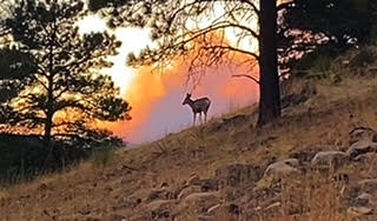 “A few days before we evacuated on April 22.” Photo and caption by Carmen Baca. “A few days before we evacuated on April 22.” Photo and caption by Carmen Baca. The winds blew it farther, in all directions, often shifting from one to the other, morning to afternoon and far into the night. As hours turned into days, it covered more ground. Alarm amongst us rural residents in its way grew as our vecinos, people closer to it, watched it draw near. Surely, the crews fighting it would stop it soon. But the beast created its own weather. Powerful, relentless winds pushed it over more arid earth, growing in acreage, sometimes by the hundreds and later, by the thousands in a matter of hours, as reported by those who sought to bring it under control. Wrapping itself around living organisms and taking the life from them in an instant, the menace spread across the landscape, covering all in black and red. Days later it doubled in size. The 50-70 mile an hour winds sent it forth with ferocity. It created Pyrocumulus clouds which rose over 30 thousand feet, obscuring the blue and roaring over the land with renewed power. TV news reporters stood with tall plumes behind them, signaling the route of the red beast. Their cameramen’s lenses showed us the destruction from several locations, different angles, and points of view from authorities, from the fighters in the battle zone, and from people potentially in its path if it proved unstoppable, waiting for instructions and preparing just in case. Our hearts grew heavy. The beast occupied all our thoughts and so many of our nightmares. It fed voraciously on the forestlands beneath and those surrounding Hermits Peak. Those in command of the fire fight announced the coming days would be catastrophic; the area consumed would grow exponentially with the propulsion of the winds. Those fighting from the skies were forced to abandon their pursuit while those battling on the ground retreated more than they advanced. The intensity of the monster’s hot, fiery breath would have incinerated them otherwise. The morning and evening reports about the swift growth of the red terror struck those of us closest to the path of the enemy. We learned how to navigate several fire maps online, our fear weighing us down and our anxiety burning in our guts as we saw the burned area growing larger by the hour. When it reached the community of Pendaries Village, it swooped down over the pine-covered mountains on either side, enveloping them in its fiery, destructive embrace. The plumes rose in billows of black; then they turned white, and finally brown as they covered the sky. The velocity of the winds gave breath to the fire-head on that day. As though a giant blew out a candle, the flames exploded before they whooshed between the mountains on both sides. Out of control, the inferno fed on the ancient pines and spruces, the fir, conifer, and the wild oak. All disappeared into towers of flames, entire mountain tops of trees glowing red, inspiring terror in all who saw them. Those woodland creatures which could escape fled. The sun glared in a fiery orange ball behind the yellow-brown haze, day after day, enveloping everything in a smothering, poisonous fog. Ash fell and embers glowed. Day turned to night for those closest to the danger. And the now enormous enemy continued to fill its belly with everything in its path, devouring one house here and leaving the neighbor’s over there untouched. The monster didn’t choose its food; its wind-driven route determined which structure it ate and how many of them fed its hunger. The people from the hamlets, the villages, and the rural communities obeyed the orders to evacuate: San Ignacio, Las Dispensas, and Las Tusas first, followed by Rociada and Gascón, our closest vecinos in Tierra Monte several miles away, and us. Only a handful of us remained in Cañoncito de las Manuelitas. We looked the red beast right in the face that day, and we knew we had misjudged. The dense, smothering smoke swooped down over us, forcing us to wear our Covid masks again. As dusk turned into midnight black, we fled in a caravan, surprised to see other residents down the road a few miles had also waited until they no longer could. We joined vehicles merging onto the highway, our line of headlights snaking down Nine Mile Hill to the nearest town, Las Vegas. Those beacons just ahead and closest behind guided us as we crept down the road. Even the red crowns of the tallest trees disappeared into the black of April 22, 2022. A week later, the neighborhoods on the far west side of Las Vegas received the alert to evacuate. The beast had followed us, about four thousand evacuees in total, and now threatened close to thirteen thousand more New Mexican residents. Two colleges in the vicinity evacuated, and the town shuddered in fear that night. Days later, the erratic winds blew the gargantuan southwest toward San Geronimo and northeast toward the communities of Sapello and La Tewa. After another few days, more communities fled. Social media flooded with all manner of posts from photos to videos of flames people shot from their front yards. Glimpses of the red beast from many locations made the national newspapers. As the now enormous monster terrorized so many communities, TV news reporters interviewed those who lost everything, and from their helicopters, cameras panned out to show the world how our landscape went from pastoral meadows and verdant mountain forestlands to miles of blackened, limbless trees standing like tall arrows pointed at the skies, the ground beneath a mix of gray ash and black soot. Homes, barns, and outbuildings which had been in families for decades turned into piles of rubble, many topped with the bent and curled-up tin which had been their roofs. The red beast played a game of Russian roulette with the land, ingesting one section of forest and leaving another over the next hill alive, devouring an entire rural community while bypassing the one beside it. Like Death, the beast was indiscriminate. It felt no empathy for those whose lives it afflicted, feeding itself with their priceless treasures, heirlooms, and family inheritances. It bore no sympathy for the flora or the fauna it consumed. Close to 80 days passed as the monster fed itself, terrorizing the people and the animals in its path. In early June, with over 341 thousand acres of destruction in its wake, it slowed in consumption. Some days it held in containment; other days it grew by several hundred acres. We hoped the end of the nightmare was close. But we also knew it could revive in any location where hot spots remained, those smoldering trunks or burning utility poles, dense material not easily extinguished. The beast, even in pieces, could threaten us once more. It wasn’t likely to return over the already destroyed areas since it sought fuel to reanimate. Our forestlands were burned or badly singed, but our Cañoncito, the valley between the mountains, remained mostly intact the night the fire head swooped over us and left our vecinos in Tierra Monte with nothing. A shift of the winds could bring the flames back upon us. We prayed for the beast to become more subdued by the day until we could draw deep breaths and let the anxiety fall off our bodies. We longed for blue skies and days without rising plumes. For the spirits of our dead, our Antepasados, the devastation proved too much. They, like their descendants, us Norteños, had maintained their faith that the army with its pumper trucks and bulldozers, hot shot crews and smoke jumpers on the ground, and the air tankers, scoopers, and choppers in the air would kill the beast and end its terror. Our dead heard our heartbreak over our inheritance—the ancestral lands and the cherished adobe houses they left us. They heard our combined prayers and succumbed to our despair. Our forefathers cried in the heavens, and the rains fell upon the red beast which had wreaked terror in the four directions and became the largest disaster in the Land of Enchantment. The scientific theory meteorologists offered was that the monsoons came early in June of 2022. We Norteños know the truth. We, the victims of the ravenous monster, touched the hearts of our forefathers with our prayers and our tears of helplessness. We had done nothing to bring the beast down upon us. Nothing. The same people who gave life to the monstrosity known forever more as the Hermits Peak Calf Canyon Fire now warned us we needed to steel ourselves for the next disaster: floods from the burn scars left in the wake of the beast. As though trying one last weapon to assault us, the beast did as predicted. The monsoons fell gentle and steady at first, not in downpours or cloudbursts. The Ancianos in the heavens cried with a quiet sympathy for us, their progeny, and our plight. The tears brought refreshment to the parched earth with a gentle touch. Then the rains turned more fierce and the almost daily flooding ensued, and we knew our Antepasados’ hearts had broken. Their sorrows combined with ours as we watched what had survived the fires now succumbed to the destruction from the flood waters. The red beast had been vanquished after 144 days, but it took out its revenge long after it had breathed its first breath. 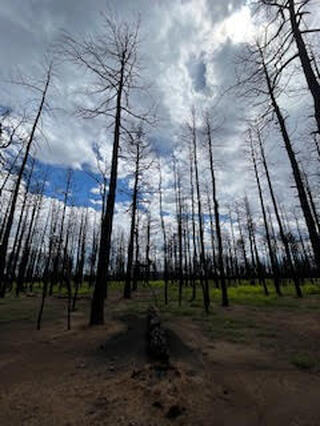 “This is the forest where my stories take place. The green growth is something we’ve never had before. The ground is gray from the ash, soot, and flood water debris.” Photo and caption by Carmen Baca. 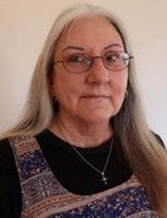 Carmen Baca taught high school and college for thirty-six years before retiring in 2014. Her 2017 debut novel, El Hermano was a New Mexico-Arizona Book Awards Finalist in 2018. Her third book, Cuentos del Cañón, received first place for short story fiction anthology from the same program in 2020. Her latest novel, Bella Collector of Cuentos, was published by Somos en escrito Literary Foundation Press in November 2022 (order a copy here). She has published five books and over fifty short works in online literary magazines and anthologies. She and her husband live a quiet country life in the mountains near Las Vegas, New Mexico, caring for their animals and any stray cat that happens to come by. Mrs. Reed’s Christmas Treeby José Antonio López In addition to sharing our early Texas history with others through my Rio Grande Guardian online newspaper articles, I also wrote about growing up in El Barrio Azteca in Laredo, TX, such as the example below, first published on December 24, 2013. It describes the time when I first learned of the special Gift of Giving during the Christmas season, and whose message still applies today. Wishing you and yours a very Merry Christmas (Feliz Navidad) 2022. For most people, childhood Christmas memories serve as imaginary gold nuggets treasured for a lifetime. One of these gems is also my earliest recollection of when I first learned the true meaning of Christmas giving. It was 1953; I was about nine years old and in Third Grade at Central School in Laredo, Texas. Mrs. Reed was my teacher. Authoritative, yet warm and friendly, Mrs. Reed was a classic elementary school teacher. Effective and practical in her no-nonsense approach to teaching, she constantly challenged us to learn. In her classroom, “Eyes and ears on the teacher” was the rule. A few days before the Christmas holidays vacation, she would purchase a small Christmas tree and placed it in the middle of one of the classroom work tables. She also bought the tinsel and garland. Then, each student in class was asked to donate one ornament. They could either make it in class or bring one from home. Trimming the tree was an extra treat for us students. As a reward for good behavior, she allowed us to help her adorn the tree, which was done a little each day. By the time we had our class Christmas Party on the last day of school, the tree was finished. Not all teachers went the extra mile. So, after lunch on that special Friday, teachers formed a line outside our classroom and brought their students to view and admire our creation. Barrio El Azteca was mostly poor blue-collar. Most of our neighbors were hard-working day-labor folks and migrants. They arose before day-break and returned home at nightfall; dead tired after their day at a building site in town or working at one of the area’s ranches and farms. The next day, they did it all over again. Their pay was dismal; and employment for day laborers was erratic. Knowing that Christmas trees were a luxury in some children’s homes, Mrs. Reed responded with her own style of kindness. During the last day of school, she put all our names in a bag. She then asked a fellow teacher to pick a name from the bag. The student whose name was drawn won the Christmas tree. More than anything that particular Christmas, I prayed that I would be the lucky winner. Having overheard my parents a few days earlier, I knew money was tight in our monthly budget. It seemed that they might not be able to buy a Christmas tree for us that year. That’s not to say that our house wouldn’t be decorated for the season. Mother always did a great job decorating our home with very limited resources. Too, the center point inside the house was a small Nativity set in the living room. Yet, the spot reserved for the tree was empty. So, it was with great anticipation that I welcomed the last day of school before our Christmas break. The Christmas Party was well underway that afternoon, when all of a sudden, I heard my name called. I couldn’t believe it. I had won the prize. When the dismissal bell rang, I asked Bernardo, a classmate, to assist me in carrying it home. He agreed. Mrs. Reed helped us remove some of the breakable ornaments and she put them in a small box. As soon as we reached the outside of the school building, every step of the way became difficult. First, we had to maneuver a steep stairway in front of the school entry. In one arm, Bernardo carried our notebooks and in the other, the small box with the ornaments. I carried the tree still sporting the tinsel and garland. Second, balancing the tree upright in front of me, my view was very limited. Walking on the unpaved, gravel, street was tricky. So I walked on level ground, avoiding any large rocks that might make me fall. A slight wind was blowing and small bits of tinsel were dropping off the tree, marking our way. We were a sight to behold! Our house was about six blocks from Central School. Bernardo’s house was half-way to mine. So, before we knew it, we had already walked the three blocks to his home. I placed the tree on the ground and waited for him to drop off his school books and tell his mom he was helping me get home. After a moment, his mother walked out to admire the tree and went back inside. It was then that I realized Bernardo’s home didn’t have a Christmas tree. Suddenly, a hard-to-explain powerful feeling overcame me. I asked Bernardo to open his front door. Before he had a chance to ask why, I carried the tree inside and placed it by the front window. Hearing the commotion, his mother walked out of the kitchen and I asked her if she would like to keep the tree. She was stunned, and began to weep. She gave me a big hug, nodded “yes”, and thanked me. Then, I helped Bernardo put the ornaments back on the tree. It immediately brightened up the room. As I left, the two of them were quietly standing admiring their beautiful Christmas tree. When I got home, other kids had told my mother of my winning Mrs. Reed’s Christmas tree. As soon as I entered our home, Mother asked me where it was. When I told her what had happened on my way home, she began to cry just like Bernardo’s mom. Mother gave me my second big hug of the day. She then called Dad at work and told him what I had done. My father, a stern man of few words, but possessing a big heart himself, approved of my charity. That evening, he returned from work with a Christmas tree strapped to the top of his car. In summary, I tell this story to focus on the plight of today’s needy. Having lived the experience, I am in a position to say that poor people don’t enjoy being poor. Nor are they lazy. That is why they don’t deserve the unkind treatment they receive almost daily from politicians and some news commentators. The fact is the poor are in a never-ending struggle to improve their quality of life. They only ask for a compassionate helping hand to grab onto the next rung in the ladder of success. This Christmas let’s all be part of the solution by helping them do it. 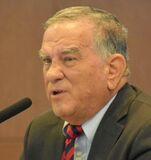 José “Joe” Antonio López was born and raised in Laredo, Texas, and is a US Air Force veteran. He now lives in Universal City, Texas. Joe is the author of several books. His latest is Preserving Early Texas History (Essays of an Eighth-Generation South Texan), Volume 2. Lopez is also the founder of the Tejano Learning Center, LLC, and www.tejanosunidos.org, a website dedicated to Spanish Mexican people and events in U.S. history that are mostly overlooked in mainstream history books. Memories of a Mexican Boy From El Paso: Making It at the University of Texas in the 1960s by Daniel Acosta, Jr. Prologue With apologies for confiscating a part of Norman Podhoretz’s memoir title for my own use, I knew when I started the three-year B. S. pharmacy program at the University of Texas in the fall of 1965 it was make or break for me. I had no close friends in high school and never had a date. I was not entirely a loner in high school; I talked to my classmates and acted friendly. It was not until my junior and senior years that I joined a few school clubs and became more involved with activities I enjoyed, such as the Science Club and the Chess Club. Academically, I did well at Austin High School; I graduated as one of the top seven students in a class of 330 students—four white males, two white females, and me, the lone Mexican American. In 1963, Valedictorian and Salutatorian students were not selected for the first time in El Paso high schools; instead, the top 2% of the class were honored at graduation. I never learned who was number one. Two weeks after graduating from high school, I was on the bus to take me to my freshman classes in English and American History at Texas Western College in the summer of 1963. The so-called “high school on the hill,” which us Mexicans dubbed the College, was our first real chance to experience the college experience. TWC is really a beautiful campus, if you like the desert with colorful cacti and mesquite bushes and limited trees and grass. The small, jagged foothills of the Franklin Mountains near the campus add to its beauty—and thus its nickname. The architecture of the buildings is quite unique with a strong Bhutanese influence—distinctive, red-tiled roofs. Many of the graduating Anglo students went to more glamorous schools away from El Paso. Beginning College For the next two years I caught the early morning Beaumont bus on Piedras Street a block away from my home. The bus went south down Piedras to Five Points, where there was a Sears for shopping and the Pershing Theater. Throughout my early teens I spent many Saturday afternoons watching many B westerns and crime movies. In June 1963, now that I had graduated from high school, I was ready for a better class of movies to see. I remember vividly the first showing in El Paso of Cleopatra with Elizabeth Taylor and Richard Burton at the Pershing. I had read in the El Paso Times that this Hollywood epic was a movie to not be missed—it had Taylor and Burton who were having a torrid love affair during the making of the film. Eddie Fisher, the famous pop singer, divorced Taylor soon after the movie was released. Because their affair was in the news on a nearly daily basis, I knew that I had to see the movie. I got to the Pershing about two hours early to wait in line for a ticket. By the time I arrived there was a long line of people. I saw a group of high school girls who were laughing and waving to their boyfriends to come to the front of the line. “Johnny, did you bring enough money to buy the tickets? Hurry up, we saved some spots for you in line,” yelled one of the girls. As three of the guys pushed and shoved to get to the girls, other people in the line screamed for them to get back to the end of the line. This got the attention of the security guards who rushed to grab the guys and moved them away from the loud and angry people. Eventually things quieted down and people waited patiently to get their tickets. That was my first taste of a so-called mob scene. It was really not that much of a thing; it was only people trying to butt into line. It broke the monotony of standing in line and made me more excited to see the movie. I later learned during my summer school classes, the manager of the Pershing, Mr. Miledi, was a part-time chemistry teacher at the College. Everyone called him “No Bugs My Lady,” a popular ad at the time on radio and TV for an insect spray. I remember seeing him in the fall semester when I was taking freshman chemistry. After leaving Five Points, the bus took a right on Yandell Drive heading west to the plaza in downtown El Paso. In the middle of the plaza was a round, waist-high fountain enclosure, which was dry most of the year. It was a big attraction for kids and tourists because a lonely, foul-smelling alligator was stuck right in the middle of the fountain looking for food to be thrown to him. Of course, there were signs warning people to not feed the alligator, but it was done all the time. I felt sorry for the alligator; I did not look at it while I waited for the Sunset bus which stopped at a medical clinic, a few blocks away from the College. On that bus were many maids and yardmen who worked in the more expensive neighborhoods of west El Paso, near the College. When I come to think of it, my college education really began with my observations of people on the buses I took to and from TWC. Because the Beaumont bus began near William Beaumont Army Medical Center a few miles straight north up Piedras, there were a variety of people who used the bus: people who worked downtown in major department stores, banks, insurance offices, etc., and those people from South El Paso who used the bus to get to work at the Medical Center and at Ft. Bliss—one of the largest Army bases in the country. They were mainly Mexicans who did cleaning and yard work for the Army. Tina, my older sister, became a civil servant, and eventually became the executive manager for the main EEO office at Ft. Bliss. I got to know the bus driver, who always asked how I was doing with my courses. After I graduated from pharmacy school at the University of Texas at Austin three years after leaving TWC, I received a draft notice to return to El Paso for my induction into the US Army at Ft. Bliss. A few weeks into basic training, my platoon had to do some training in the desert, and it so happened that the Army bus was driven by the same driver who took me to classes for those two years at TWC. I could only nod to him because the drill sergeant demanded complete silence in the bus. At least, I knew someone from El Paso during my 8 weeks of training. I had received a graduate deferment to attend the University of Kansas to study for a degree in pharmacology, but the deferment was canceled as the Vietnam War intensified in 1968 and more draftees were needed. Seeing the friendly face of my former bus driver every once and while at Ft. Bliss made my training easier and made it easier to accept my fate if I were to be sent to Vietnam. The country was in turmoil and many student protests were occurring on college campuses. I had thought with my pharmacy degree that I could avoid the Vietnam War and be one of the lucky few to not serve in the military. I was not sent to Vietnam; instead, I served my two years at Army medical facilities in Savannah and South Korea. Several of my Mexican high school classmates were not as lucky as me and were wounded or killed in Vietnam. Minorities across the country were the ones who suffered the most during their service in the military in the 1960s and early 1970s. At Texas Western College Now to the story about my other education to get a degree. After much thought and research about what my major should be, I decided without any advice from my family, teachers, or counselors to pursue a career in pharmacy. That was it; I had made my decision on what I wanted to do; and I developed a plan. To receive a B. S. degree in pharmacy, one did two years of pre-pharmacy coursework at any college, such as chemistry, physics, calculus, English, history, biology, accounting, government, and so on and so on. The final three years for the degree were taken at an accredited college of pharmacy, which in my case was at the University of Texas at Austin after completing my pre-pharmacy courses at Texas Western College in El Paso. The other two colleges of pharmacy in Texas during the 1960s were in Houston. One guess why I chose UT. Even back then Austin was the city to live in Texas. Dallas and Houston did not even come close. After graduation from pharmacy school, I would take the pharmacy board exams, pass them, and become a licensed pharmacist in 1968. Easy—right? The two-year pre-pharmacy curriculum at Texas Western College meshed quite nicely with my plans because the expenses would be minimal to cover, living at home. For some Mexicans like me I felt it was a let-down to not attend a college away from El Paso right after high school; instead, we made fun of the “high school on the hill” and mistakenly thought it was degrading to not go to a “real college.” I was so wrong to think that. Texas Western College was one of the best things to prepare me for the rigors of going to “The University” in Austin, as it is known to native Texans. My family did not have the financial resources to help me much with college expenses, such as tuition, books, bus fare, clothes, lunch expenses, etc. I worked four years through high school as a paper boy and had saved several hundred dollars for my first year of college. I knew that I could not go to a college that was away from El Paso. I realized that if I wanted to attend UT-Austin, it meant working 20 to 25 hours week while I managed a full course load each semester. My next-door neighbor, Mr. Bacon, who I’d known throughout my high school years, got me a job at the Data Analysis Center, which just happened to be across the street from the student union and most of my classrooms. DAC did contract work for the federal government on several defense and scientific projects. I did not know what to expect; most of the guys working there were math, physics, and engineering students. I was a pre-pharmacy major, mostly taking biological and business courses to prepare me for admission into pharmacy school two years later at the University of Texas. As I was going to the water fountain in the main work room at DAC, I heard someone yell out at me: “Hey, Danny. My name for you is now Danny Waters,” Tony winked at me. He told me that he had already seen me get a drink of water twice today and that was now my nickname. I instantly liked him; he was charismatic; and he looked and dressed differently than the rest of us. He wore nice slacks (not jeans) and well-ironed shirts. His haircut was very similar to Cary Grant’s and to the guy who played “Mr. Lucky” on TV. He told me it was a razor-cut, and I could not see a hair out of place. He definitely did not look like a nerdy engineer. Tony was in his senior year, majoring in electrical engineering. It turned out in his junior year he ran for president of the student body, and he won. It was very unusual for a junior to win the presidency and be around when the new president began his term of office. I did not think that Tony really knew what it meant that a Mexican guy had been elected over a white guy. El Paso was definitely a town where whites were more prominent in business and government circles. I never saw Tony use his status with others; we Mexicans at Texas Western College were quite proud of him. My freshman year knowing Tony, when I think back over the years, influenced me greatly. I became prouder of my own Mexican heritage. I was a strong supporter of JFK when he was elected President, and especially, when he appointed the first Mexican American mayor of El Paso, Raymond Telles, the ambassador to Costa Rica. Tony always treated me as an equal and not as a young pimply teenager. When his girlfriend was to start graduate school in geology at the University of Arizona in Tucson, he asked if I could help the both of them move her things to Tucson. I jumped at the offer. Just talking with Tony for that whole trip was so memorable. I was shy and introverted. Intuitively I knew that to be successful socially, professionally, and romantically I had to be more willing to engage with other people and become more extroverted. I began to come out of my shell during my two years of pre-pharmacy coursework at Texas Western College, but without a car and having to take a bus to get to campus every day for those two years I was still at a disadvantage. It became an obsession for me to get a car while I attended college, especially when I would go to Austin for pharmacy school. “Danny, how much have you saved to go to Austin next fall?” asked one of my co-workers at the Data Analysis Center on campus. “I can make it through the first year without working at UT but will have to work full-time in El Paso during the following summer to save more money for the second year.” Actually, my plan was to get one or two jobs in Austin while I was attending pharmacy school for the second year of the professional pharmacy curriculum. I had surprisingly breezed through my first year of classes at UT without having to work like I did in El Paso. I had saved enough money to cover my expenses for my first year at UT. I worked the following summer at a pharmacy in El Paso to build up my savings again. I wanted the extra money from these jobs to buy a car in Austin. Would I be successful? Time and hard work would tell. At the University of Texas I learned about two jobs after my first year at the College of Pharmacy through some hungry and poor pharmacy classmates, who, like me, had to work to get through college. As pharmacy students, it was drilled into our minds by our professors that we were part of the medical profession with physicians and nurses, and we had to show those other two professions that we deserved the same respect they received from the public. A few discount pharmacies were starting to pop up in the 1960s; they were considered to be a negative blot on the more respectable and professional retail pharmacies that had dominated the profession for years. One particular discount pharmacy chain that started in Dallas threw salt in their eyes by opening up their first drug store in Austin. Even its name was insulting and looking for a fight—Ward’s Cut Rate Drugs, which was notably located on Austin’s most famous street, Congress Avenue, looking down the throat at the Capitol a few blocks away. It wanted to hire pharmacy students as employees, and it paid good hourly wages. I applied and got the job. One down, another job to go. I was told about a dormitory for rich girls; the pay was non-existent. Not many students wanted to work there if there were no hourly wages. Instead, a student kitchen worker was paid with meals after the girls ate. If I did not have to buy groceries and cook my own food, this arrangement was right up my alley. I took a kitchen job at the exclusive and pricey Hardin House. I now had my food taken care of each month and I was earning good pay at Ward’s. With these two jobs, I was well on my way in saving money for a car. I did what I always did while I attended UT: go to classes, grab meals when I could, work at two jobs, study, sleep and do it all over again the next day. I had an evening job at the Hardin House and later changed jobs to another girl’s dormitory, starting at 6:30 AM. At both jobs, I closely observed how these co-eds, mainly sorority girls, talked and laughed among themselves as if the kitchen student workers did not exist. At UT, I went to my pharmacy classes in the morning, and in the afternoon, I attended laboratory sections in medicinal chemistry, pharmacology, compounding drugs, pharmacognosy, drug manufacturing, and microbiology. The ultimate senior lab—the Prescription Lab—was a simulated drug store where us pharmacy students learned to read prescriptions, fill the prescriptions, catch any mistakes in the prescriptions, and advise the fake patients/customers on how to take their medications and point out any potential side effects. After classes, I ran back to the dorm to get my free meal before I caught a bus from campus to get to my other job at Ward’s, with its prominent location in downtown Austin. As mentioned earlier, my professors said it was disgraceful and unprofessional to work in a discount pharmacy. Did I really care? I worked there about 15-20 hours a week; I was making good money to get my car. I never thought much about working two jobs. I needed the money to survive so I could live in a city that was the envy of other students living in such cities as College Station—Aggieland; Lubbock—Texas Tech; Waco—Baylor; or my hometown of El Paso—the Miners. I won’t mention the other schools in Houston and Dallas. The problem was that I was not able to enjoy the active night scene my first two years in Austin. Because of my work schedule, my social life in college was not spectacular and if you really want to know, it was sub-par. I did not have a car and that put a real damper on meeting and dating girls. I had a major goal, besides getting my pharmacy degree: get a car and live in style during my last year of pharmacy school. It was the penultimate year that was a bear to endure, but I was getting closer and closer to getting my car. The Hardin House I should talk more about my job at the Hardin House—that exclusive dorm for co-eds that parents paid big bucks to have their daughters fed and protected while they attended the mostly white University of Texas. There were a few Black students at UT in the 1960s. The percentages for Hispanics, mostly of Mexican heritage, were in the low teens. It is now around 23%. I was hired by the head cook, a wonderful Black woman who deeply cared for her student workers and treated us with respect. I looked forward to working each night to hear stories about her life, and she really liked to joke around and laugh with us. However, a few months later a dining room manager was hired to run the entire dining experience at the Hardin House, including the kitchen and the fancy dining room for the girls and their guests. When she was in the kitchen, there was less talking and laughing. I eventually had a run-in with her. Working in the kitchen was sometimes hard and dirty work. The other student workers were at the Hardin House because, like me, we needed the money to attend the great University of Texas, or as stated in the Texas Constitution—a World-Class University! I was the only Mexican student in the kitchen, and the other workers were white and came from small towns in Texas—they did not receive much financial support from their families to make it through college. As a joke, my roommate, Jim, gave me a copy of George Orwell’s Down and Out in London and Paris, with its classic description of what a kitchen “plongeur” did in the bowels of an expensive hotel restaurant in Paris. My kitchen job at the Hardin House did not compare to Orwell’s experiences, but there were several times I was down on my knees cleaning out the grease trap under the sink and removing clogged food from the disposal so it could start working again. Unlike the “plongeurs,” we Hardin House kitchen workers had a fancy dish washer to help us with washing the many dirty pots and pans and dishes. Mopping up the kitchen floors was somewhat enjoyable because we knew that a delicious meal would be waiting for us after our work was done. The head cook prepared marvelous meals for the girls and staff. I can honestly say that the kitchen was relatively clean and hygienic and did not compare to the filth described by Orwell at the hotel restaurant kitchen. When it became very busy at mealtime, I was sometimes asked to serve portions of the meal to the girls. “Good evening, which entrée would you like—the roast beef or the Chicken Parmesan,” I asked with a goofy smile or at least it was a fake smile. One evening, the manager caustically remarked that these girls did not know how good they have it: “Here is one girl who asked for a full dinner plate of food, and she barely touched any of the food. What a waste.” Not realizing it was a rhetorical remark, I replied: “her parents paid good money to have their daughter live at the Hardin House and she can really do anything she wants with the food.” She glared at me and walked away. The manager often stood behind us servers, making sure that equal portions were correctly given to each girl. When all of the girls had been served and had finished their meals, the kitchen crew picked up remaining plates, cleaned the tables, and swept up any food scraps under the chairs and tables. Then we feasted on our meals at a table in the back of the kitchen. I tried secretly to sneak out a second dessert to eat later at my apartment, but I was caught by you-know-who. I was instantly fired on the spot; she got her revenge. My favorite singer, Frank Sinatra, was singing his hit song about the time of my firing: “That’s Life: You’re riding high in April, shot down in May…” After I was fired by the manager, I found another job at another rich girl’s dorm; did you really think that I would now have trouble buying my car? The kitchen student workers were allowed to sit in the main dining room at a table reserved for us lucky dishwashers, bus boys, and servers. We had to be more careful with our conduct in front of all those very attractive co-eds. My ’67 Mustang After two years of working and saving my money, I was nearing the end of my patience with not having a car. I had saved a good sum of money but was still not able to buy a new car outright. I did not want a used car. What made the difference was that I received a full scholarship for my final year of college. It paid to have excellent grades. In the 1960s, to receive the scholarship money the student had to be in good standing and show proof of enrollment. When I showed the foundation that information, I received the check. I could do whatever I wanted with the money—presumably quit my jobs and concentrate on my studies and use the money for tuition and living expenses. Instead, I used the scholarship funds with my savings to purchase outright a cool, sky blue 1967 Mustang, four on the floor—a classic if I had kept it! There was no need for monthly car payments, but I had to continue to work my two jobs to pay my living expenses, which now included gas and car insurance. I filled up the car at Shamrock’s, which gave free glasses for a full tank. I bought the car in the summer before I went back to work at the Hardin House in the fall. I was now ready to party. However, before I could start driving, Jim had to drive the car off the dealership lot because I did not have a license and did not know how to drive a manual. After a monthly ordeal of Jim teaching me how to drive, I took my driving test at the Texas Department of Safety on Lamar Avenue a couple of miles from campus. I passed on my first try. Jim and I were casual friends in high school, and because both of us were in pre-pharmacy at Texas Western College, we decided to room together in Austin to cut down on our living expenses. Unlike me, he dated a girl before I had my first date, and they soon fell in love and wanted to get married that summer. Minnie had a family in San Benito (in the South Texas Valley) and went home to tell her parents about her upcoming marriage. A few days later, Minnie asked if Jim could help her with her possessions she had at home. I was recruited to be the chauffeur and eventually the best man at their justice of the peace wedding back in Austin. The drive was about 6oo miles round trip, via US 77 S. It was my first road trip, and the Mustang performed brilliantly, all done in one day. My First Real Date Lest I forget, let me tell you about one more episode I had at the Hardin House before I was fired. Mrs. Stella Hardin allowed only sophomores and juniors to reside in her house. The parents knew that she treated their daughters as if they were her own children, and she had strict rules on their behavior while they lived in her house. A Hardin brochure stated very clearly her rules: This is my house with my rules; if you are to live here, you are to follow my rules. Mrs. Hardin was a gracious woman, a refined Southern lady. I would see her one last time near my graduation date. This last incident involved the breaking of one of Mrs. Hardin’s cardinal rules about no dating of kitchen student workers. One evening, I was able to catch the eye of a cute sophomore as she waited in the serving line to get her meal. One thing led to another, and we exchanged names. She was a much younger sophomore than the other girls, having just turned 18. Starting my fourth year of college I was the proverbial older man—I was 21. Perhaps it was due to my age and my Latin good looks (?) that she finally accepted a date with me. I think she accepted my date offer because every time I called to ask her for a date, her roommates answered the phone and made it clear that she was not in and to stop calling. She was nice to me when I saw her in the serving line, and she finally agreed to talk on the phone when I gave her my phone number. I believe her roommates dared her to go out with that unknown Mexican guy who worked in the kitchen. We agreed I would not go into the lobby of the Hardin House and ask for her to come down from her room. She suggested that we meet me outside at a specified time as if she were going alone to the library. The date was no big thing. We went to a movie at the Varsity Theater on the main drag across the street from the Texas Union. It was the Audrey Hepburn movie, Wait Until Dark, about a blind girl and drug dealers. The only time we really touched was when she jumped out of her seat and grabbed me during the classic scene when the dealers had no lights to find Hepburn in the darkness of her apartment until they opened the refrigerator door, and the room turned all bright. The whole audience screamed. We left the movie laughing and talking, and she complimented me on my new Mustang. She was waiting all evening to show me one last thing. When we arrived at the Hardin House, I walked around the car to open the door. She got out and unloosened the strap on the trench coat that she never took off during the movie and quickly flashed me that she was only wearing a shortie nightgown. She grabbed me and abruptly gave me a brief French kiss, daringly darting her tongue into my mouth for a nanosecond, and then ran to the front door. I never saw her again because it was close to finals, and I was fired shortly thereafter. I guess she won the dare with her roommates to go out with a Mexican. For some of those girls at the Hardin House, but not my particular date, I am reminded of a Beatles’ song. “Baby You’re a Rich Man: How does it feel to be one of the beautiful people?” Marking Time: My Final Year Now that I had my Mustang, I was able to have more dates after my first encounter with the Hardin girl. Actually, the first time I took out a girl in my Mustang was within a few weeks of buying the car. It was with a girl I had met at Ward’s when she came in as a customer. I would not call it an actual date because when I asked her out after work for burgers at McDonald’s, she brought her younger brother without telling me; he was in his teens and had a developmental disability. Unwisely, I let her drive my Mustang up I-35 to Round Rock and then back to Austin. We were lucky that we were not caught for speeding. Later that same night we returned to my apartment complex, which had a swimming pool; not having any swim trunks we jumped into the pool with our jeans on and sat there talking for a couple of hours. After that episode, I knew that I had to be more careful in the selection of my dates. There were a few girls who worked in the cosmetics section at the drugstore, but they had no interest in college. I had a few dates with a couple of them but there was nothing in common that kept our interest to see each other again. There were some female pharmacy students that I was able to know better, but I found out that having dates with two of them created too much gossip to endure and that ended my attempts at romance with fellow classmates. I did not try to get dates with any of those co-eds at my second job. They were older than the Hardin girls, and to be truthful I was somewhat intimidated by their snobbery and arrogance. I know what you are thinking—what about my studies? I would be lying if I said that it did not have an effect on my studies. My going out during the summer and fall semesters of my last year in pharmacy school did reduce my studying time, and for the first time I had to struggle to eke out two B’s and two A’s, after a near perfect two years of A’s in my earlier classes. UT professors posted exam grades on their office doors so everyone could see what you did on a test and what your final grade in the course was. I remember a female student, not a pharmacy student but who was in two of my science classes, asked me just out of the blue why I did not do better on one of my tests. I did not make the highest grade in my physiology class on that one exam. We really had never talked much out of class. But I aced the final exam with a 98. She did not say anything to me then. Not to stereotype people, she was a pleasant, good-looking sorority white girl who I remember dressed very preppy with cute short skirts, stockings, and expensive loafers. I did not wear my Mexican heritage on my sleeves while I was at UT, but anyone born in Texas recognizes who is Mexican and who is not. I am sure that she knew I was a Mexican. In my final semester, I made all A’s in some of the more difficult courses in the curriculum. That made up for that fall semester. I graduated first in my class. Relaxing After putting in a full day and night working and studying, my idea of relaxing and having fun was to listen to two Austin radio stations, KNOW-AM and KAZZ-FM, in the late evenings. KNOW played top 40 songs and KAZZ was the progressive station covering folk, jazz, and blues. I went to sleep listening to these stations. Most Saturday evenings after working at Ward’s, I returned to my garage apartment around 10:30 PM. A fraternity house was near my apartment, and I often heard a rock band playing and frat boys yelling and screaming during one of their Saturday parties after a Texas football game. One night a local band was particularly good, singing Van Morrison’s hit song: “And her name is G… L…O…R…I… A and I’m gonna shout it all night.” It turned out to be a blast of a party with the band singing the lyrics of “Gloria” over and over for about 10 minutes straight. I was tempted to sneak over to the frat house to see the wild orgy scene. But I had to work at Ward’s that weekend, both Saturday and Sunday, and I needed some sleep. A myth spread throughout the Texas fraternity community that the song was sung for more than 45 minutes. As I was drifting to sleep, I heard these lyrics reverberate in my mind throughout the night: “By the time I get to Phoenix she’ll be rising.” I wished that I had had a girlfriend to think about. Closer to the End Late one evening I was listening to a Paul Simon song on the radio. I know what you are thinking, and it was not that song. It was from the album of the movie, The Graduate, Mrs. Robinson. It was my final semester of pharmacy school in 1968. I had seen the movie, and it made me realize I was about to begin my real life after completing my degree at the University of Texas. There was an obnoxious guy sitting behind me at the theater who made wisecracks throughout the movie about how dumb the main character, played by Dustin Hoffman, was, and it sort of ruined the movie for me because I later learned that the asshole was a pharmacy student in one of my classes. For my final two semesters, I got up around 5:45 AM and made it to work by 6:30. KNOW AM played the Top 40 hits and it seemed to play the same hit in the morning when I was driving to work. A particular song that I heard for the last several weeks before I graduated was the one by Dionne Warwick—”Do You Know the Way to San José?” It really got to me because I was getting antsy on where I would live and whether I would work as a pharmacist or go to graduate school to earn a doctorate in pharmacology and toxicology? The Vietnam War was really heating up in 1968. My decision was made for me when the government offered draft deferments for admission into graduate school. I took the GRE, applied for fellowship support, and filled out several applications to four or five universities. Then I waited. For the last several months of the spring semester, I was content to wait it out because several of my professors had written excellent letters of reference for me and told me that I would be accepted into graduate school without any problems. However, the year 1968 was a very traumatic time in American history: the assassinations of MLK and RFK occurred; there were major race riots in several large cities; there was the resignation of LBJ because of the Vietnam War; there was the rise of the Chicano Movement; and there were massive protests at the Democratic Convention in Chicago to decide who ran in place of LBJ against Richard Nixon. I began to realize how much power and influence the Democratic Party had lost in Texas by observing those rich co-eds’ reactions to the deaths of MLK and RFK. Early in June after RFK had won the California Democratic primary over Gene McCarthy, the news of his death was being shown on TV in the lounge of the girls’ dorm I was working at. It was next to the dining hall as I walked to a table with my tray of food. I heard loud screams, laughing, and clapping by the girls at the announcement of his death. I was so glad that I was leaving UT, Austin, and Texas right after my graduation. My Future Is Decided A month before graduation, I learned that I had received a prestigious, nationally competitive fellowship from the National Science Foundation, which allowed me to use the fellowship funds to attend a university of my choosing. I soon realized that this award was something big because several of my professors were trying to persuade me to stay at Texas for my graduate work. I chose the University of Kansas on the recommendation of my favorite professor, Dr. Delgado, the only Mexican American on the faculty. I would leave Texas later in June right after I had taken my board exams in pharmacy. A few weeks before graduation, I was working a Saturday shift at Ward’s, which on that particular day there was a sale on many OTC drugs and several cosmetic products. I was working one of the registers and out of my right eye I saw Mrs. Hardin at the next register. I tried not to look at her. I thought to myself that even the rich like to buy things that save them money, even if it’s at a discount pharmacy. The interior of Ward’s was not that fancy, and all types and classes of people came into the store. The prices of each product were placed on the shelf with a piece of masking tape right below the product. This meant I had to memorize the prices of the products because there were no price stickers on the items. Anything to save money and time for Ward’s. “Young man, how are you doing with your classes?” Mrs. Hardin pleasantly smiled at me. “Quite well. I will graduate soon with a degree in pharmacy and plan to go to graduate school in Kansas.” I had only seen Mrs. Hardin in the kitchen a couple of times and never thought she’d recognize me a year later. She looked straight into my eyes and said: “Good for you and best of luck in your new studies.” I was at loss for words and simply replied, “Thank you”! She walked out of the store with her toiletries and drugs and that was the last time I saw her. Epilogue My parents, my older sister’s family with her husband and three kids, and my unmarried younger sister came to Austin to celebrate my graduation and send me off to attend graduate school at the University of Kansas. After the College of Pharmacy graduation ceremony, where I received several pharmacy textbooks for graduating at the top of my class—Summa cum Laude, I took my family back to my apartment to eat. My new roommate, Nick, and I went to Kentucky Fried Chicken and got several family meals. We ate, talked, and laughed. We also planned to attend HemisFair ’68 in San Antonio the next day after graduation. I had set up my family in a small family-run motel near campus on Guadalupe Street, the so-called “Drag.” It was not fancy, but it was inexpensive and easy to get on I-35 to go to the World’s Fair. I was to pick up my parents in my Mustang. Early Sunday morning the next day, I arrived at the motel and my father was wearing a sleeveless T-shirt getting some fresh air in the gravel-dirt parking lot outside his motel room. It was going to be a hot June day in Texas. A truck suddenly did a U-turn in the near empty street and came to a screeching halt in front of the driveway to the motel. The driver yelled from his truck: “Are you looking for work—you can make an easy $25 for a small project at a building site!” The white builder thought this Mexican man would jump to work for him that morning. My father laughed off the offer and told the man he was visiting his son in Austin. I turned my back on the man and angrily said to myself—this is Texas. The next day I said good-bye to my family and took off for Houston to take my board exams. My next stop was Kansas to begin graduate school. But that part of my life was interrupted by the cancellation of my graduate deferment, and I had to serve a two-year stint in the US Army. And then I started my PhD work in 1970 at the University of Kansas. 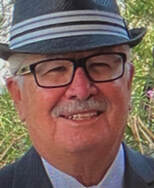 Dan Acosta is a Mexican American born and raised in El Paso. His grandparents emigrated to the US in the early 1900s. His career spanned 45 years as an educator, scientist, and administrator in academia and the federal government. He recently retired at age 74 in 2019 in Austin and plans to write about his experiences with discrimination and bias during his life and career. He received a B.S. degree in Pharmacy at UT-Austin and a Ph.D. in Pharmacology at the University of Kansas. He has had a few of his stories published in the Sky Island Journal, The Rush, Somos en Escrito, and The Acentos Review. Savings Account for a Cow?by Henry Suarez This was my first real check. I’d worked a summer job before and been paid for odd jobs, but this was my first steady job. Don’t be fooled though it’s not like I was minting money, at $7 per hour and working part-time hours I was lucky to pull down $150. Nonetheless, I’d never felt so proud, real money earned by my hard work. Stocking reams of paper at Staples wasn’t back-breaking work but I earned this damn check and acquired a vast knowledge of copier paper. You only live once, splurge for that card stock. Soon as my shift let out, I wandered down to the check-cashing place to turn this bad boy into cold hard cash. Maybe head down to Sam Goody or The Wiz, pick up that new Ghostface album. The lyrics are a bit unorthodox but he can put together an album. Waited my turn in line to cash the check and I was floored when the lady said it would be a 5% fee. Get the fuck outta here! She must be crazy, I thought to myself, Uncle Sam already took a third of this thing without doing anything, now these fools want another five on top of that? “Nah I’ll take that back, thank you,” I said. My dad had cashed one of my summer checks for me and he rounded it up to the next dollar when he paid out, why would I settle for less? For anyone that hasn’t had the displeasure of the check-cashing place experience, it’s truly depressing. You’re typically greeted at the door by a drunk or homeless person who graciously opens the door in the hopes that you’ll slip them a few bucks on the way out. After you cross the doors into this palace of dreariness, you’re usually met by the usual band of characters, the local building porter cashing his check and then spending half of it on lotto tickets hoping to hit it big, the much too young couple with a stroller waiting for some money being wired to them so they can buy milk for the baby and on the opposite side of the spectrum is the lady wiring money back home to DR so her family can go food shopping and buy her mother’s medicine. It’s like a diagram box of how crappy life is, especially when you can’t have a bank account. I’ll hop off this soapbox and get back to my story. My father happily agreed to deposit the check for me and said he’d bring me the cash the next day, my CD shopping spree would have to wait another day. The following afternoon I was off from work and so I went straight home after school to catch my dad as soon as he arrived. From the moment he walked through our apartment door my eyes were fixated on him. Watching his every move to see when he would give me my money. After about 10 minutes he finally asked, “¿Qué es lo que pasa?” “What happened to the money?” I replied. Out of his work bag he pulled a small money envelope, he stretched out his arm to hand it to me and as I extended my arm he pulled it back and asked me to have a seat at the table. What could it be? Or worse what have I done? Is he in need of money? Will I have to give him a percentage in return for everything I’ve received over the years? We sat down across from each other at the table and he slid the envelope my way. There’s no telling what he’s about to say, so I figured I’d grab it and open it before I’m talked out of it. As expected he rounded the money up, it was already a win. The excitement was overtaking me, physically I was still in the chair but mentally I was on my way to the record store. And then he started, I could tell he was going to preach. He put his hands together like a Dominican Dr. Evil and stared intently, this is his signature move. I should’ve known a sermon was coming because everything with my dad involved lecturing. Was I better off just giving the 5%? “Son, you’re starting to earn your own money and I’m proud of you. This is a big step in a man’s life. You’re not independent yet but you’re on the way.” he said. “On my way? Fuck is he talking about? Is he kicking me out? This is $130, I can barely get an unlimited metro card. I ain’t paying rent,” I thought. “An important part of life is not just making money, but saving it and investing it, so that one day you’ll hopefully see it grow,” he continued. “Papi, I’m sitting on a couple of twenties here. I’m lucky if I can buy lunch with this,” I said hoping to avoid a drawn-out ordeal. Guess I’m lucky he’s talking about saving and not about using it to reimburse him. “That’s where it starts though, sacrifice. You sacrifice buying lunch and you take the leftovers that your mother packs. It’s better for you and you’re not spending unnecessarily,” he rebutted. “There’s no way I’m taking leftovers with me. ¿Usted cree que yo voy a calentar bacalao en el trabajo? Será para que me boten. Plus what chicks are gonna wanna go out with the dude eating leftover locrio?” I pleaded. The raised right eyebrow was a sign he was growing tired of my constant interruptions. It was time to change my game plan, so decided I would entertain it. “Ok, so are you recommending I open a savings account?” I asked, with an inquisitive look. “That’s a good idea or maybe put it into a sociedad (or susu). You get your money together and buy something that will grow in value. Ahora mismo vamos a comprar unas vacas para la finca. You won’t be ready for this round but we’ll be buying continuously. You put some money into cows and it’ll grow exponentially,” he said. All I could give back was a blank stare. Open a savings account to purchase cows. God damn cows! The ridiculousness of it just seemed too much. Here I am born and raised in NYC, the financial capital of the world and my father’s investment advice is to buy some cows in a fucking campo back in DR. Not a bond, nor stocks or even a bank CD, but bovine! “Dad, this sounds like a fantastic idea, it’s a lot for me to process right now but I’ll give it some thought.” It was all I could say, this man was dead serious about this livestock purchase. “I’m going to head out, mind if we continue this another time?” I asked. He nodded in approval, so I grab my $130 and I was off. Heading straight to the record store and after picking up my CDs I stopped off for a burger and fries. It was a sign that I couldn’t be trusted to own cows, I’d eat all the product. I never gave the cows another thought. My father either forgot or just decided I wasn’t a worthy investor. About 6 months later the whole family went to DR for Semana Santa. DR never disappoints: the food, the beaches, the beautiful women, and the ice-cold Presidentes. You haven’t lived until you’ve enjoyed a frosty Presidente in the Dominican sun. “Vestida de novia,” as we say. Even our time in the campo was great. Easter dinner was at my grandmother's house and on the menu was sancocho, which is one of my favs. The one thing I noticed absent from the whole trip was my dad’s prized cows. Where was the investment that would literally change this family’s fortunes? “Papi, what happened with the cows I haven’t seen a single one?” I asked. “Didn’t work out with the cows. They got sick and died,” he said matter of factly. “¡Pero dieron justamente para el sancocho!” 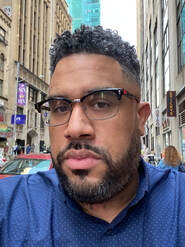 Henry Suarez is an emerging Dominican-American writer from New York City. Residing in Westchester, NY with his wife and daughters. His writing focuses mainly on the immigrant experience, growing up bicultural/bilingual, and his journey through fatherhood. https://twitter.com/_suarezhenry Migas on a Bright Sunday Morning by Elena Dolores Solano Recently I made migas for breakfast. I ripped the tortillas up and placed them in a cast iron pan of hot olive oil and cooked them until they were golden colored. There are a myriad of ways to make migas, a traditional Mexican dish. While the tortillas fried, I chopped onion, garlic and green pepper on an old cutting board mi mamá bought for me years ago. After the tortillas were crispy, I added the vegetables. I sautéed them for a minute and then gently folded in the eggs and waited for them to cook, stirring the dish occasionally. The best corn tortillas are made from three ingredients, corn, lime and water, but when the lime is fried it lets off a peculiar smell of bitter tones. Eventually the smells of the green pepper and garlic catch up, and the mezcla, the mixture of flavors fills the air. My mother taught me to cook that dish and many others. When we made migas, she handed me the bag of corn tortillas wrapped in paper and told me to rip them up. If the pieces were too big, she told me to rip them up smaller. If I cut them into pieces with a knife, she said, “No, no, no,” and shook her head. I eventually figured out what size she wanted for them. For some reason I was always determined to learn how to cook from her, so I let her tell me again and again what to do in the kitchen. She believed in my ability to become a good cook. For her, being a “buena cocinera,” a “good cook,” as I often teased her, was important for many reasons. It meant you could take care of yourself. You could stock a pantry and fill your kitchen with homemade food. But her cooking was also tied to being a traditional Mejicana, where culture, faith, identity and being a woman, were also a mezcla. She was renowned for her cooking in our small barrio in Detroit. She constantly offered food to anyone who walked through her doors or sat on the stoop. I recall her making me take a full plate of fried chicken, mashed potatoes and corn to a homeless man who was sitting outside on the stairs to our building. At that moment I learned, not by words but by action, to serve others, to give freely, even when you have a large brood of your own to feed. She cooked with her comadres, making menudo to sell after mass. They sold the menudo to raise money for flowers for the feast day of Our Lady of Guadalupe. To her, cooking was second nature. When I use her recipes, I sometimes look around the kitchen, as if she is here, waiting with a toalla, a kitchen towel, draped over her shoulder, waiting to eat. Cooking was a gift of love you gave to yourself and others. I am eternally grateful that I learned to cook from her—and that she had the patience to put up with me. I remember being five years old, making tortillas with her. She let me roll small tortillas on her wooden board. She put them on the comal for me. I always let them burn. I loved the smell of the burnt masa. But more so, I loved her turning to me, saying, “You're fired, vayase.” I feigned resignation. When I was in my twenties, she gave me several of her molcajetes, a tool made of smoothened volcanic stone. In English it is called a mortar and pestle, but there is so much more. It is a touchstone, a memory stone, a portal to the past. When I grind garlic, tomatoes or peppino in the heavy bowl, I feel deep calls to tradition and culture. I feel my mamá, her comadres, my abuela and tías when I use those molcajetes. I am filled with memories that cause me to yearn for arms that are no longer here, to dial a phone number that no longer exists. I strain to hear a voice that has passed to the other side. I yearn for the smell of her comal, fire—hot, ready for tortillas. This longing is the hardest to bear. It is the call from the deep that causes such surprise. I know it well. I have seen it in the face of friends as they talk about husbands and wives, abuelos and abuelas, and friends now gone. I have heard that yearning in the voice of my siblings. My brother Gabriel died fifteen years ago. He was bold, hilarious, and opinionated. His eyes flashed like those of a sprite. He was always up to something. One Sunday, he called repeatedly and set me up for a prank. He took a beeper and set it off every time I answered the phone. After seven pranks I yelled into the receiver. His boisterous laugh filled the line, filled the air. He often called on weekend mornings. I drank coffee as we talked about politics and current events. We talked about our childhood, what had gone right and what had gone horribly wrong. Friends have shared with me countless stories of Gabriel helping them out by fixing their washer, or some other odd task. When I was angry or upset he encouraged me to let things go. There are days I want to hear his voice, to answer his phone calls and hear his mantra, “It’s all good, sis, it’s all good.” When my mother was alive, we sometimes had a family tradition of reading the same books. Gabriel and I read Tecumseh: A Life, written by John Sugden several years before he passed away. We lived in Detroit, close to the river, close to historic Fort Wayne and we were lifelong parishioners of Ste. Anne de Detroit, which was also close to the river. We knew our parish and the land all along the Detroit river had once been home to the Objewe, Potawatomi and Ottawa—the Anishinaabe peoples. We often talked about the injustices and crimes committed against Native Americans. Tecumseh gave us a much deeper insight into the history of the Native Americans of Michigan, Indiana and Ohio. Gabriel was much more expressive in his anger and emotions., and while I felt the injustices deeply, I was much more subdued. When the Archdiocese of Detroit closed all of the Catholic High Schools in the city of Detroit, students and staff marched in protest from Southwest Detroit to the Archdiocese in downtown Detroit. I was the bilingual school counselor for the only Catholic School in the city that served Latina/o students and families. Gabriel walked with us that day. I felt a deep loss at the closing of the school. I knew it meant I had to look for employment elsewhere. Gabriel saw it as an injustice against our community and he railed against its closing. I was lost in my emotions and didn’t know how to respond. I felt betrayed by the Archdiocese, but I was also afraid to admit the blow that I felt. We were a Latino/a community, we were Catholic. How could they shut us down? How could they betray us? But Gabriel was fearless. He wanted to stand up in mass and yell down the priest, but I knew my mother, a leader in our parish, would be mortified and would never recover from the shame. I knew I would feel embarrassed. The Archdiocese was wrong for shuttering the numerous Catholic high schools in the city. It was about money and dare I say, race. But I was a good Mexican daughter, I could not allow him to stand up in mass. Somehow I talked him out of the idea. I wish I had learned more of how to be fearless from him. I wish I had his strength and willingness to live more on the edge and take more risks. Too often, I let fear get the better of me. When I think of Gabriel now, I think of our shared love of food and music, of reading and social justice. I picture an angel, not a white angel covered in feathers, but an angel that looks like my brother, brown and strong, with dark feathers and hair as black as coal, carrying a sword and a shield. He does not fly lightly, he flies with a force for justice, while seeking peace. Another brother, Anthony Juan, died in 2019. He was a fierce patriarch and protector. He was rough and struggled with many demons, but he was also a storyteller. He was filled with stories about the streets and his many adventures. Tony was 15 years my senior. But his laughter and sense of humor were quick. While many people feel hugging and kissing are no longer propio, Tony always insisted I kiss him on his cheek. It always felt like kissing a brillo pad. He was a giant in my eyes. As a child, I prayed for him often. He gave my parents grief, but their love for him was relentless. He told me he promised himself he would no longer cause my parents sorrow when he saw my father cry over a situation he was involved in. Tony was an incredible artist. I longed for his artwork. He did it in bits and pieces. At the end of each October at our home parish, I put up a community Ofrenda. It is large and changes every year. I think about the theme over the course of the year. I sit in front of the space it will occupy and I try to think and pray and listen to what it should be, to what it wants to say. The year that Tony passed away was also the year that numerous children from Central America and Mexico died while crossing the Rio Grande River, trying to cross over. As a family we loathed (and continue to loathe) how our people were, and are, treated by the Right and the Left. That year I dedicated the Ofrenda to the children who had died crossing over. But I also set up a section dedicated to Tony. Pictures of the children covered the top section of the Ofrenda and on the buttomsection was Tony and his art work. But it was so strange to me that no one brought in pictures of their loved ones that year until the month of November was almost over. Normally hundreds of photos adorn the Ofrenda by the middle of November. But it was almost as if Tony was guarding those children in the underworld. His work wasn’t finished. He was still protecting, still guarding, still doing his work. Tony created stories wherever he went. One Christmas, he took my children aside and pulled a long blade out of his walking cane. He told them that if anyone ever touched them, that person would disappear and never be found. We knew he meant every word. He left my children with countless stories of boldness and misadventure. Tony loved astronomy. After he died, I had the distinct feeling that a new star had joined the cosmos—heaven was not quite ready for him. I often felt smaller than my brothers. They were large, dark, strong, muscular, very popular in our Southwest Detroit community, with the high cheekbones of my mother and the dark skin of my father. Their hair was coal—black. I was just me. Mousy, bookworm, with a big heart and a thirst for knowledge. But I also sing. So I sang at their funerals. I do not relish singing at funerals, but perhaps they knew they were leaving this earth before the rest of us. They told me what songs they wanted sung at their funerals. I did what I could. But each time I saw Tony, he told me he wanted me to sing “Ave Maria”. And while I sang it at my mother’s funeral and at Gabriel’s funeral, I was recuperating from a head, facial and ear injury at the time of Tony’s funeral. I still owe him that song. Promesa. My brothers were shadow and light, another mezcla. They danced on the edges with angels and demons and often fell, but they always got back up. They were tenacious traviesos--mischevious to a fault, but they lived unafraid. They loved running and reading, baseball and science. They both had a passion for social justice and helping others. I have seen enough of death to know the long shadow it casts, but I have also learned of the life it can bring. I am determined to remember the living. In my mind’s eye, my mother was full, a heart and life bursting with healing and love. Her quiet faith and certitude carried her. Her eyes carried laughter and sorrow, and her body showed frailty and strength. A softness enveloped her, it was as if La Virgen de Guadalupe really did cover her. Wasn’t that mi mamasita’s prayer each time we left her house in Detroit? That La Virgencita would cover us and protect us with her tela? I hold her rosary beads and sit in the well—worn white armchair where she welcomed her grandchildren, where she spent her last hours on earth. It is in a corner of my bedroom, in a window facing west. I watch the setting sun and remember her. I want to remember the light in my brothers, their passion for justice, for the broken and the poor. I want to remember their loud, boisterous voices. Their houses always had stacks of magazines, newspapers and books on history, science and politics. Gabriel always challenged me to look at my other siblings from another angle, to see with a new view, without hurt or bitterness, to live without judging yourself or others. I want to remember how safe I felt because of them. No matter where I went in Detroit, I knew they were looking out for me. After Gabriel died, I felt vulnerable. I wondered who would protect me. After Tony died, I felt it again. Who would look out for me? It took a while for me to realize my other brothers were there for me, too. When the migas finished cooking I put them on a plate my mother gave me years ago. The smell of garlic, green pepper and lime hung in the air. In the curls of steam that rose from the plate, I saw my brothers and mother, their laughter and grief, their sorrow and healing. I remember that we are all a mezcla of the present and the past. I look at the plate and think of her and others who have gone on to the other side—my brothers, my tias and tios, friends, and other people I have loved. They left pedazitos de sus corazónes, little pieces of their hearts, here and there, spread throughout our lives, like migas on a plate on a bright Sunday morning. 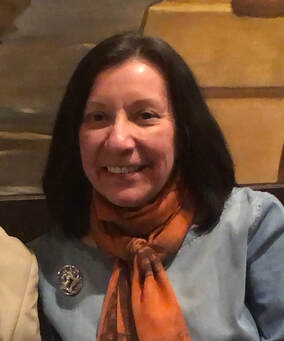 Elena Dolores Solano was born and raised in Detroit, Michigan. She is one of fifteen children. Her parents were migrant workers who moved north in the 1940s. She is a certified school counselor and works with Latino/a students in the public school system of Detroit. She is also a Licensed Professional Counselor. Ms. Solano has written for many years of her experience growing up in a large Mexican American family in Detroit. In her spare time Ms. Solano enjoys collecting anything old, a Solano family tradition, cooking Mexican food and spending time with her children, her family and friends. "Mother, Can You Molt?" |
Archives
April 2024
Categories
All
|
Donate and Make Literature Happen
is published by the Somos En Escrito Literary Foundation,
a 501 (c) (3) non-profit, tax-exempt corporation. EIN 81-3162209

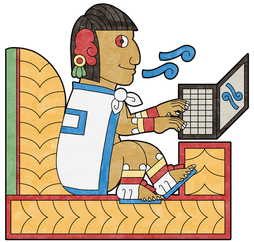
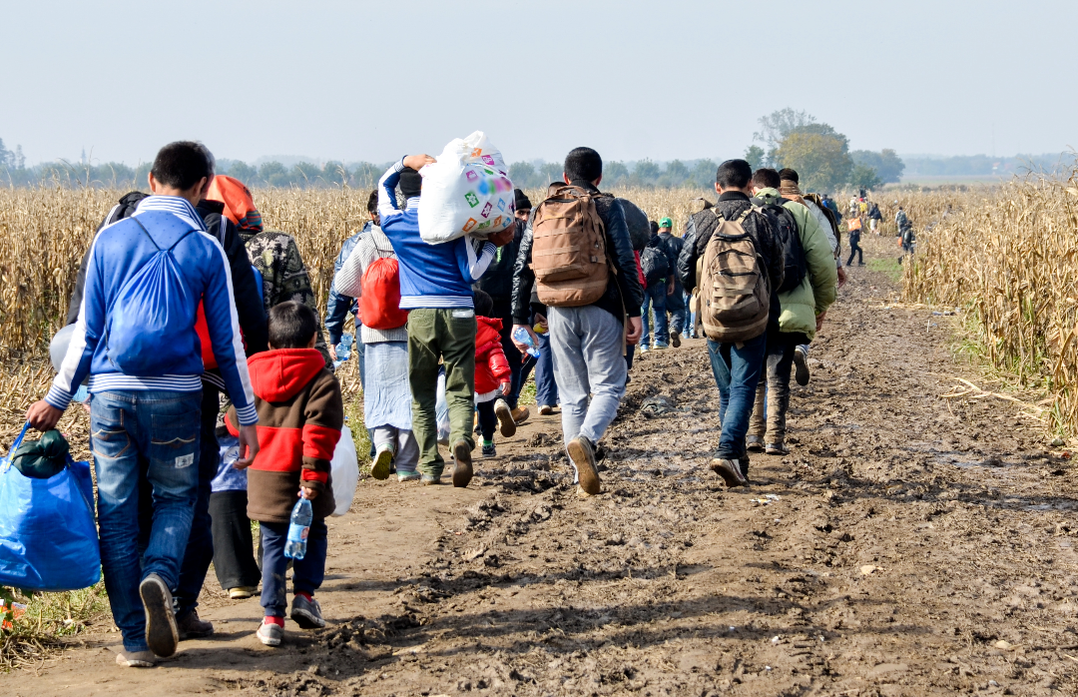
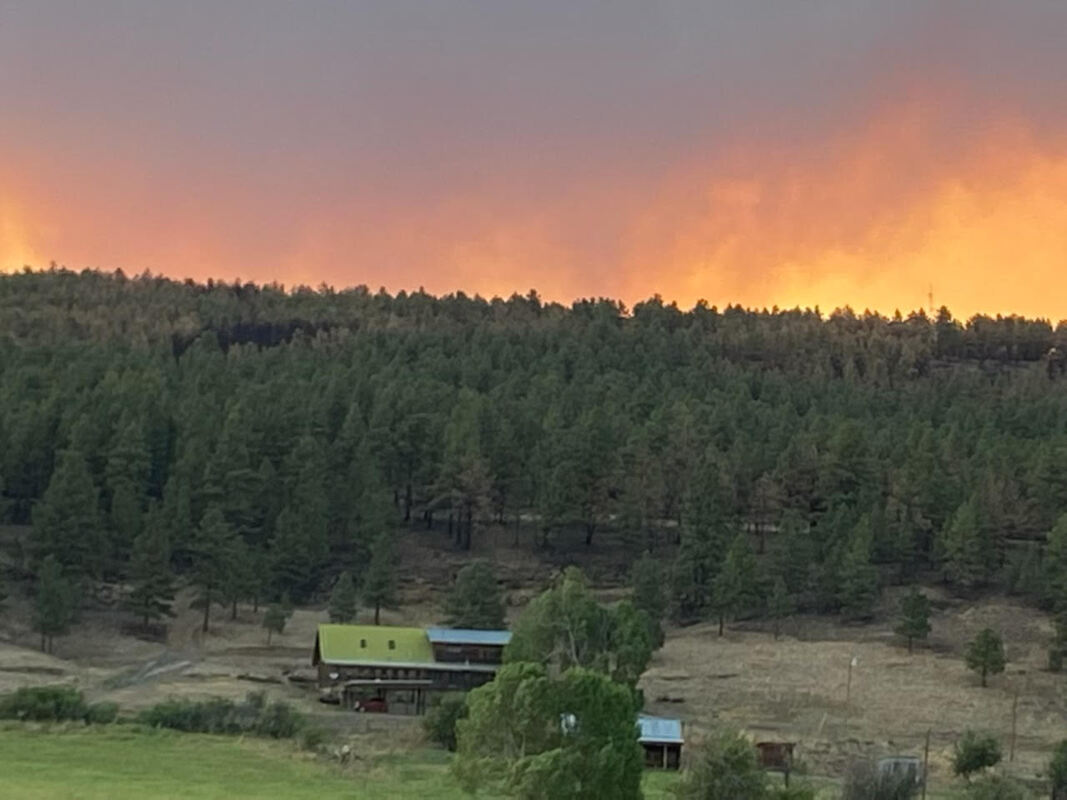
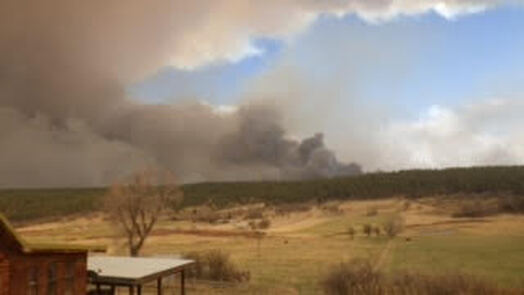
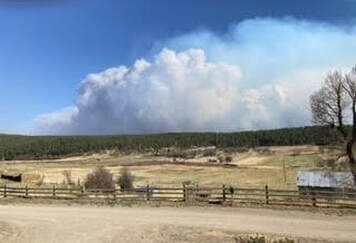
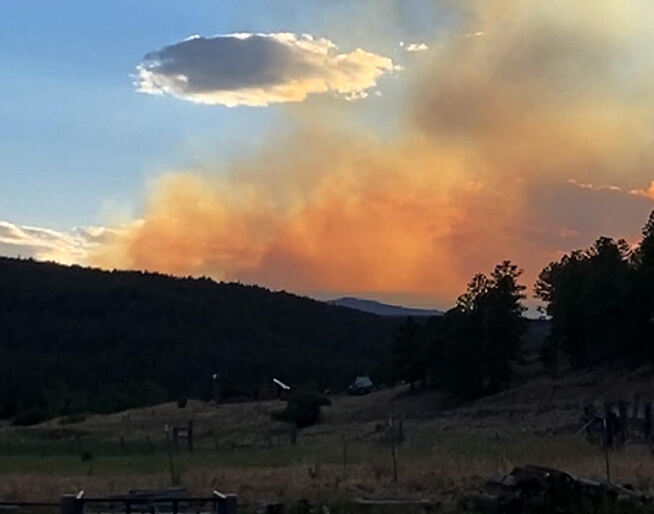
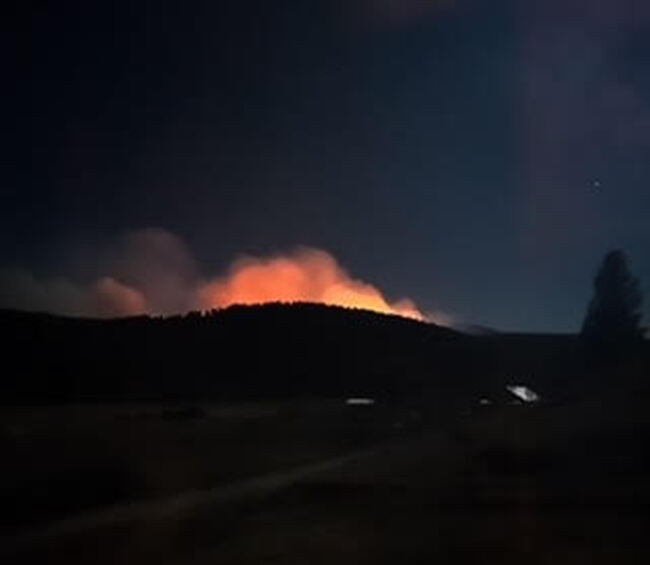
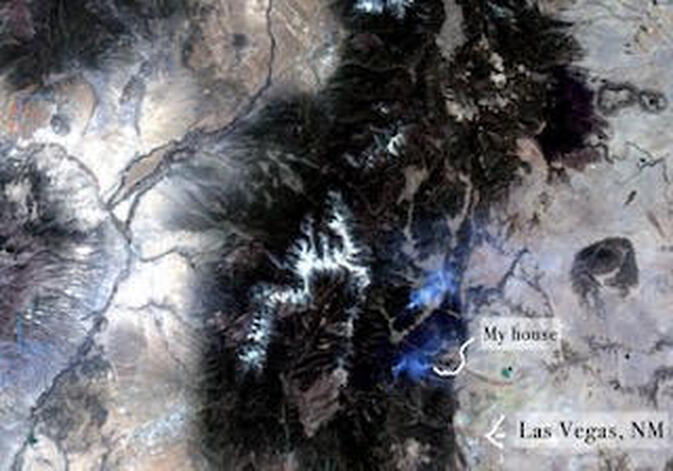
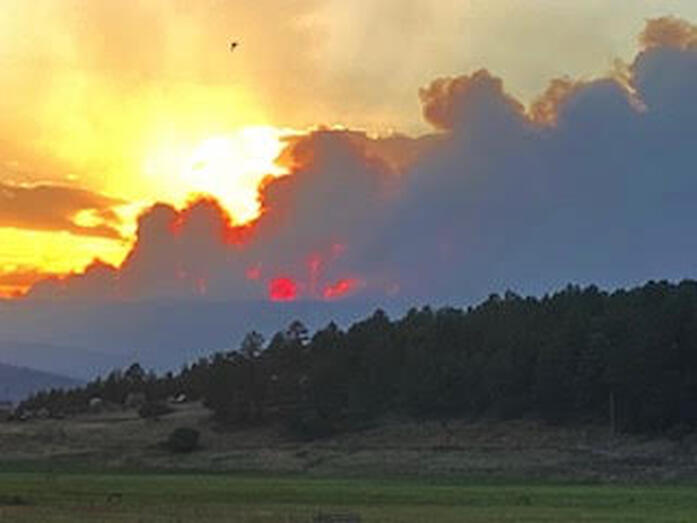

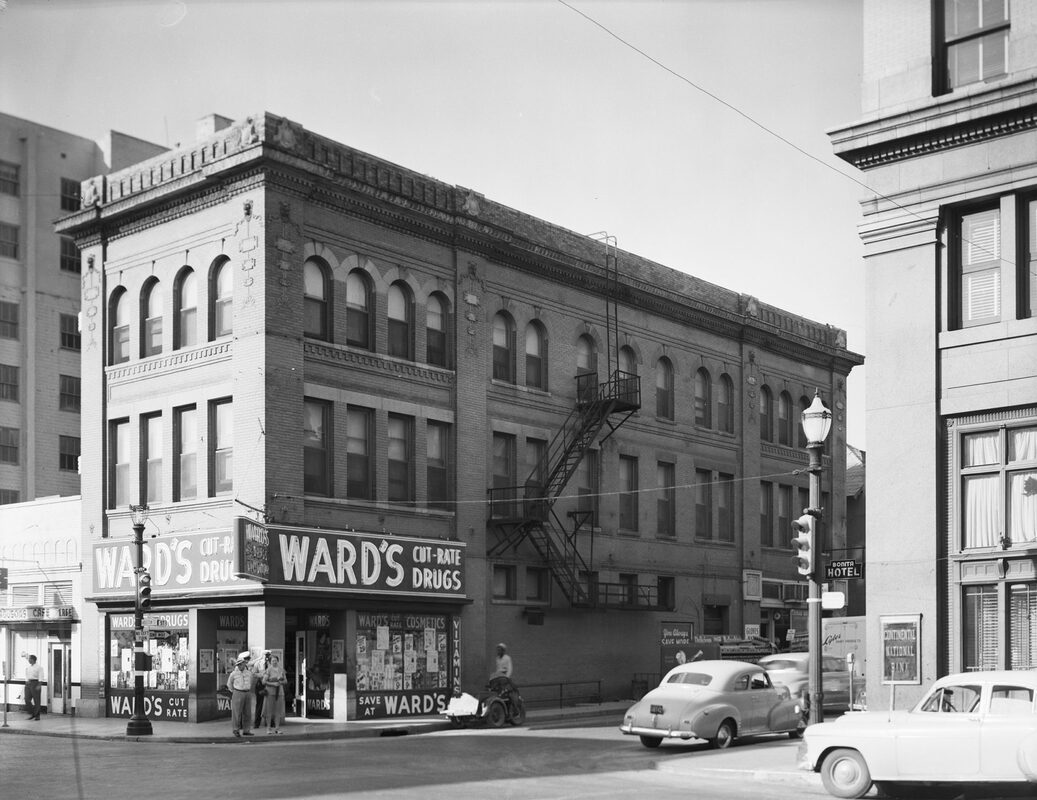
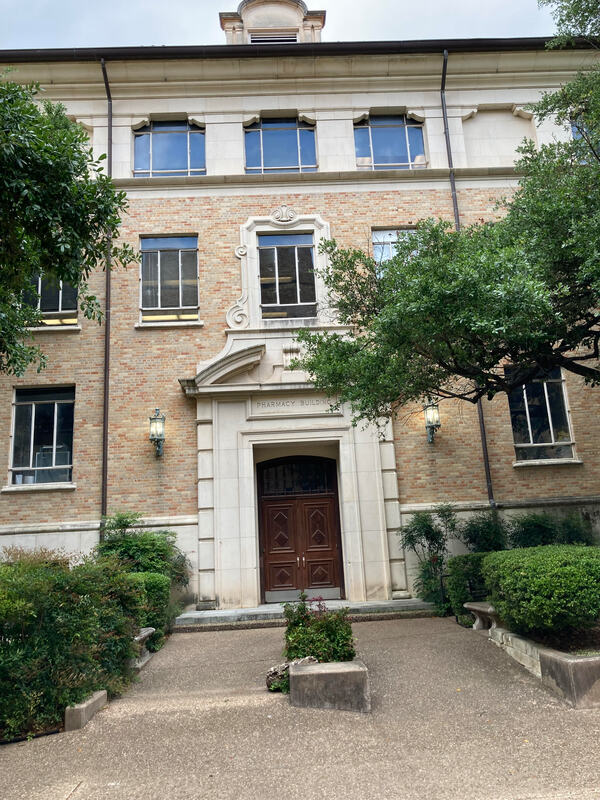
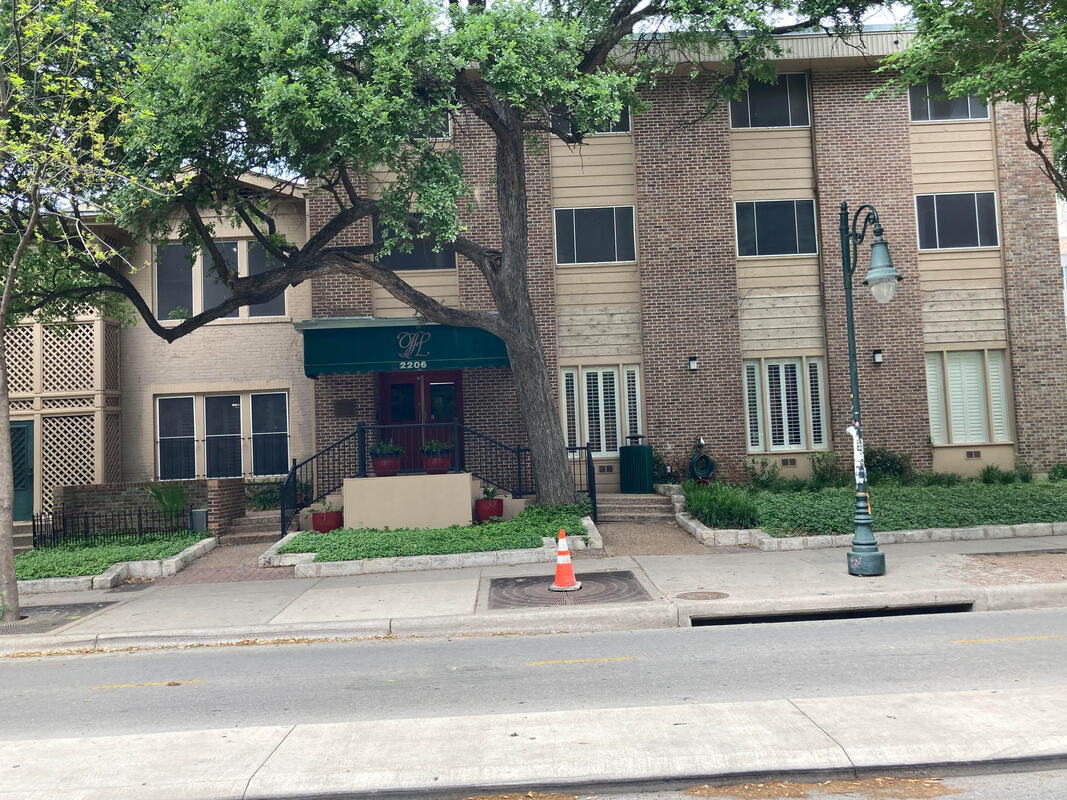
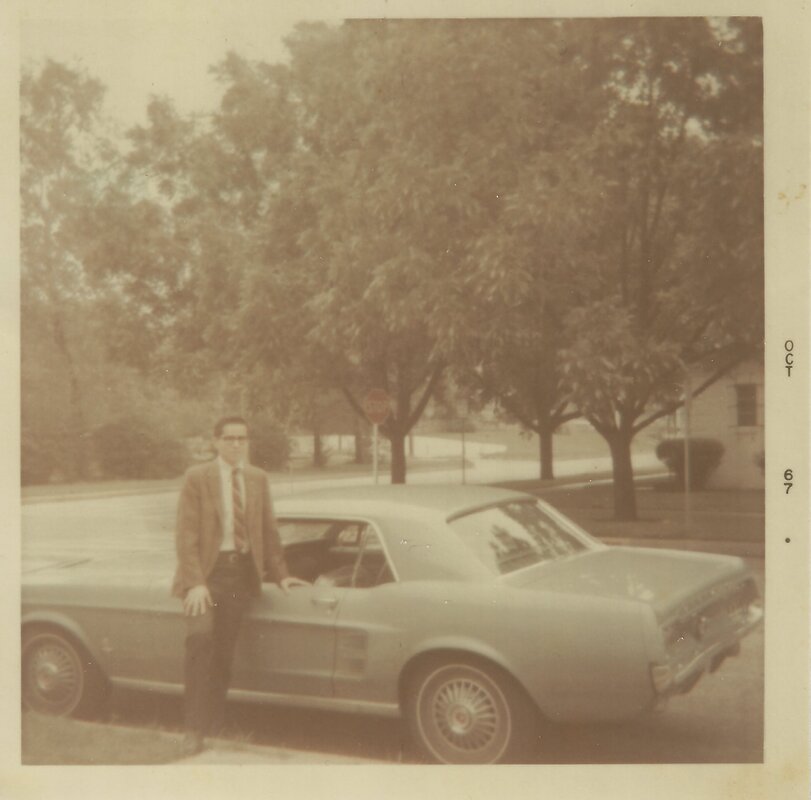
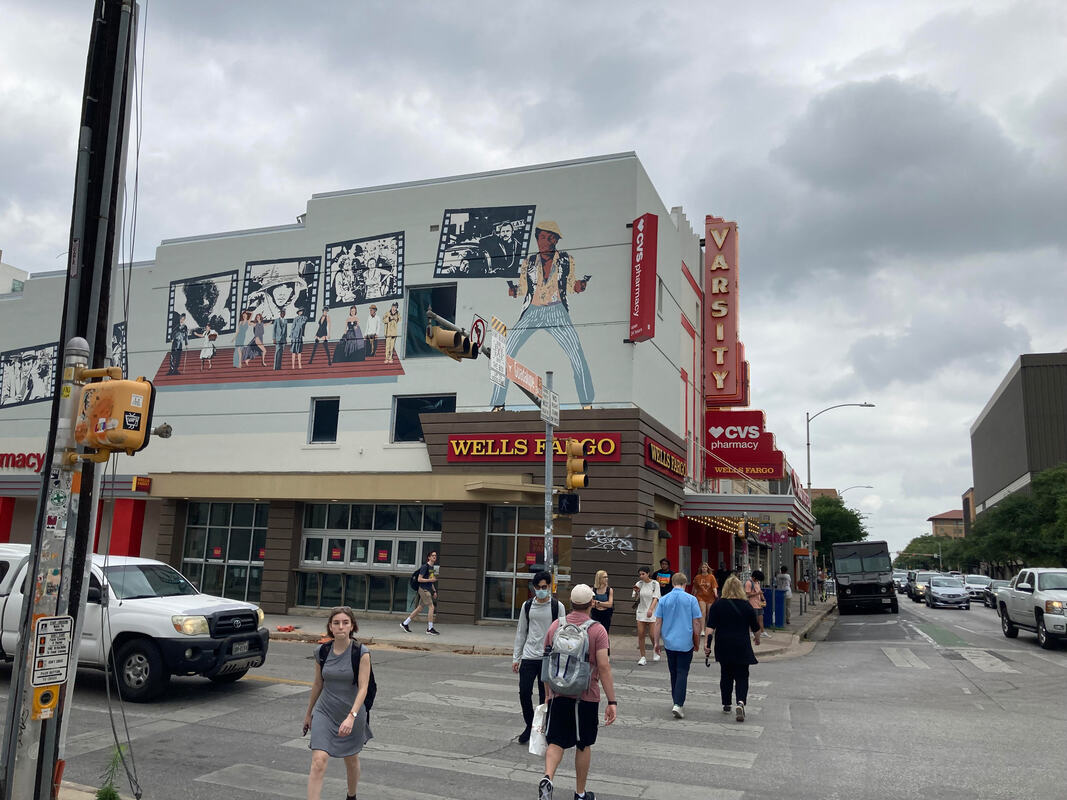
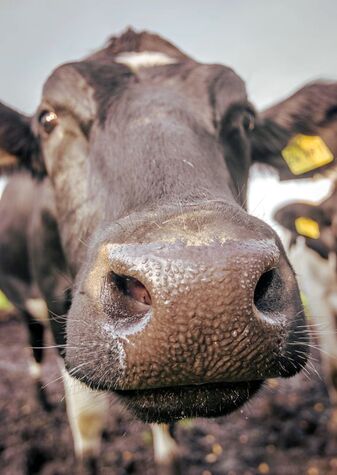
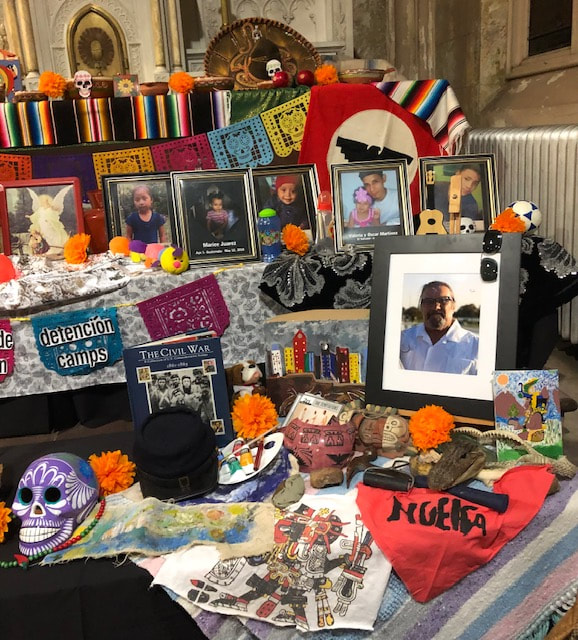
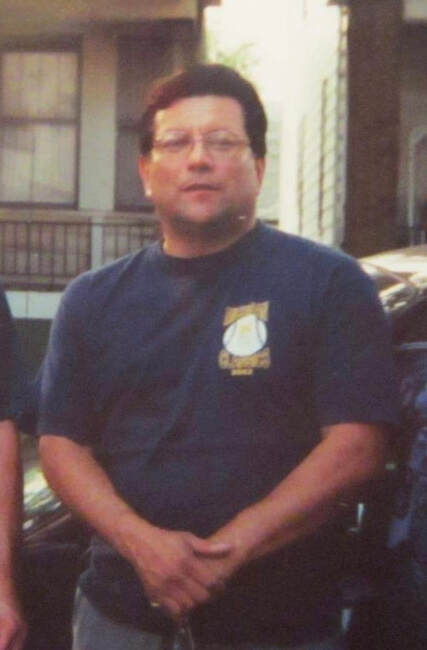
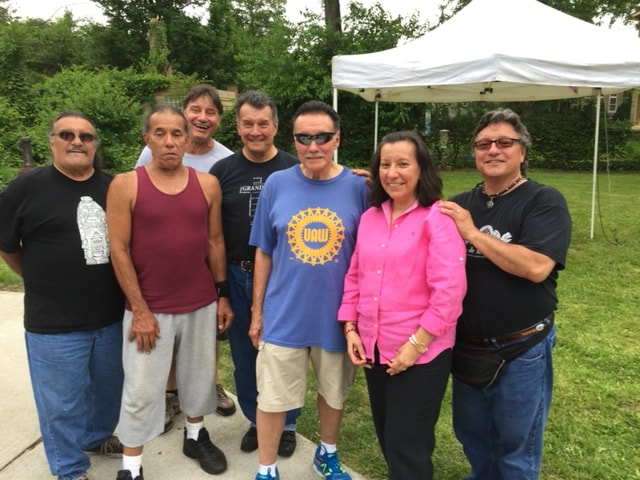

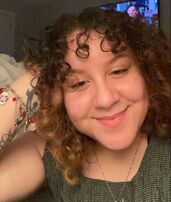
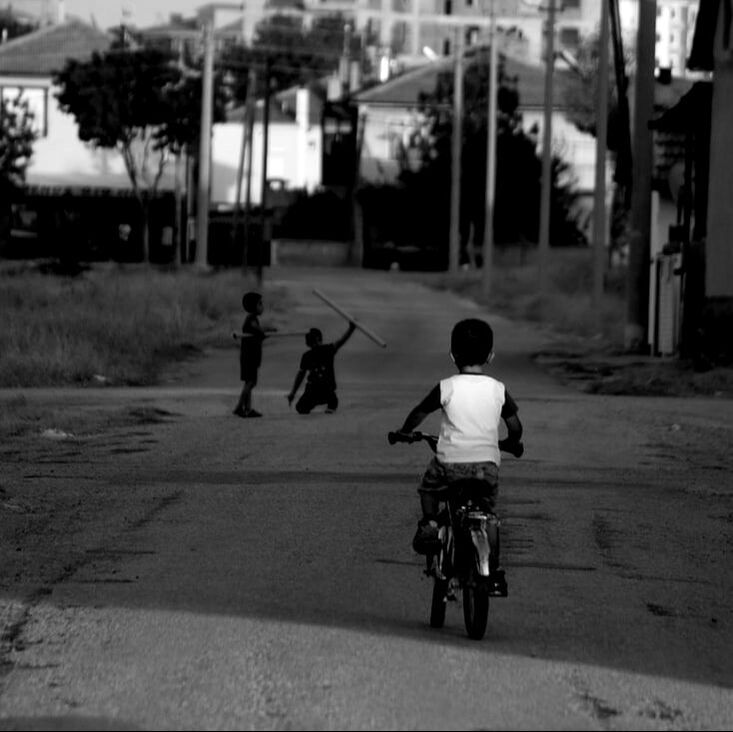
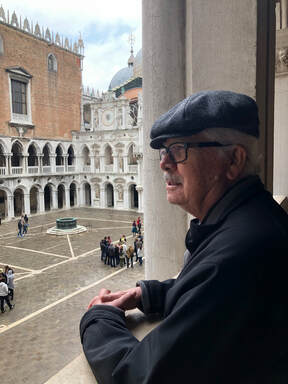
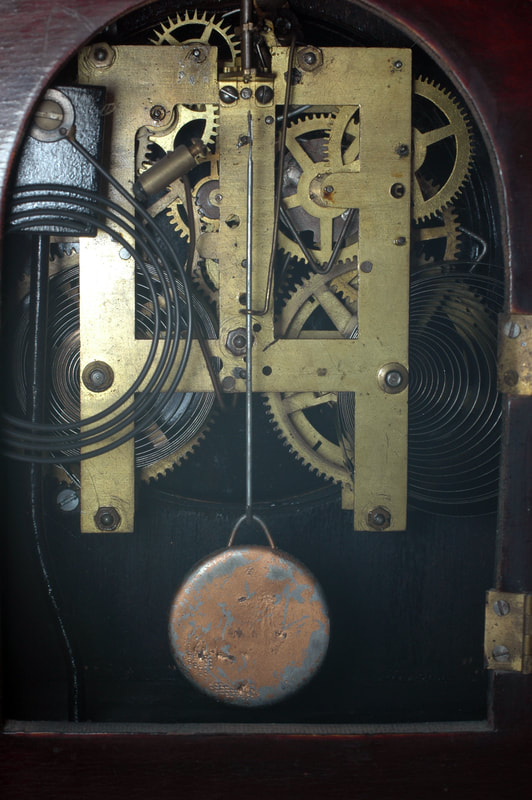
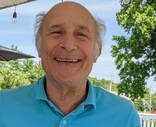


 RSS Feed
RSS Feed